The blog series highlights public health and global health issues by making deliberate connections to the social determinants of health and the sustainable development goals, through with the lived experience of professionals working to address these real-world challenges.
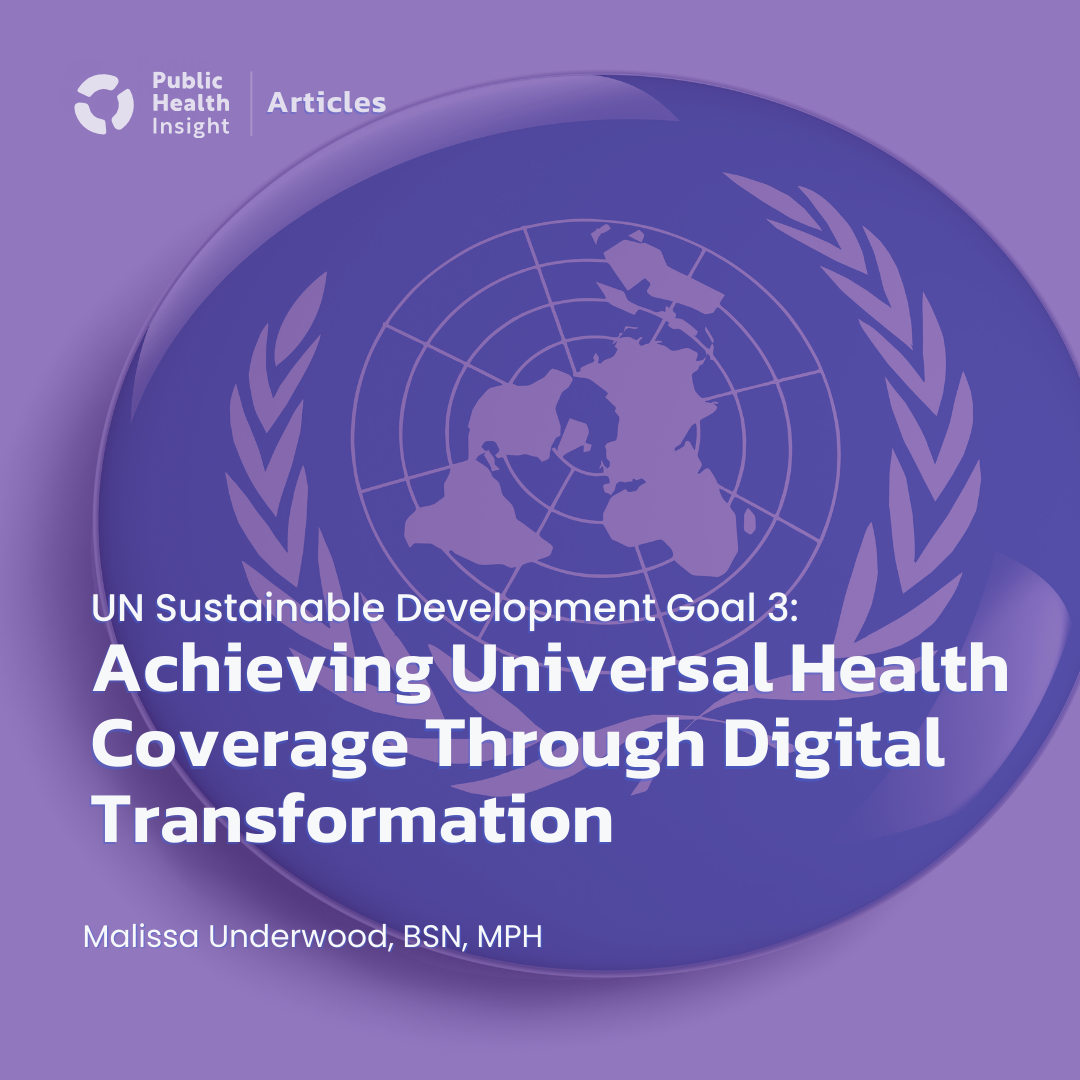
Digital technology has transformed life as we know it - from automating daily tasks, to essentially allowing us to carry around pocket-sized computers. Health systems are also rapidly transforming as new technologies emerge. In episode 107 of the Public Health Insight Podcast, the team speaks with Njide Ndili, Country Director for PharmAccess Foundation and member of the joint The Lancet and Financial Times Commission, about leveraging digital transformations to sustainably improve health systems and achieve good health and well-being for all.
11/12/2023
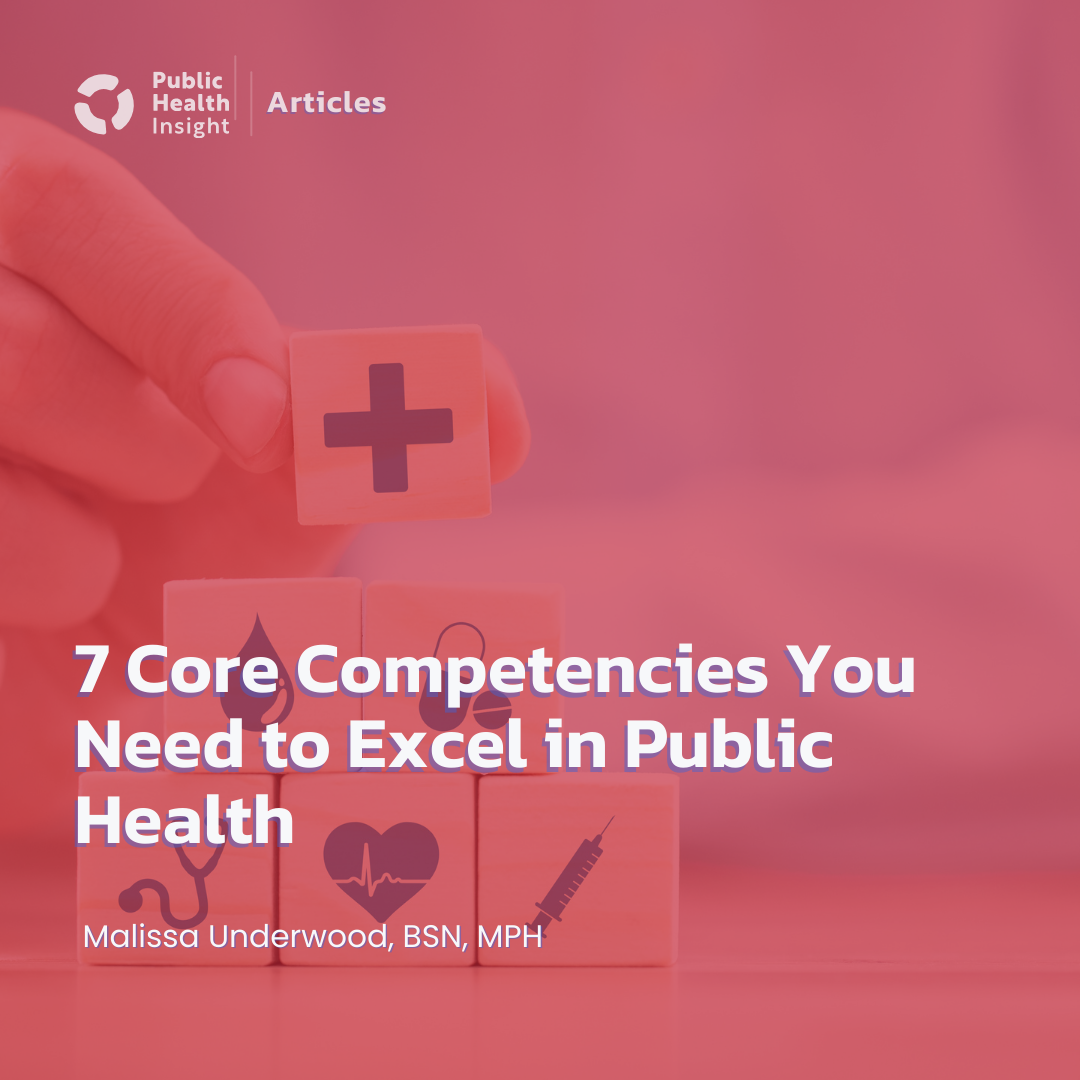
Whether you’re a seasoned professional or just starting your career, public health experts are always working to develop new skills. In this week’s podcast, the PHI team discusses 7 core competencies outlined by the Public Health Agency of Canada that every professional needs to know to succeed in the field of public health. Keep reading to see what advice they had to share!
4/12/2023
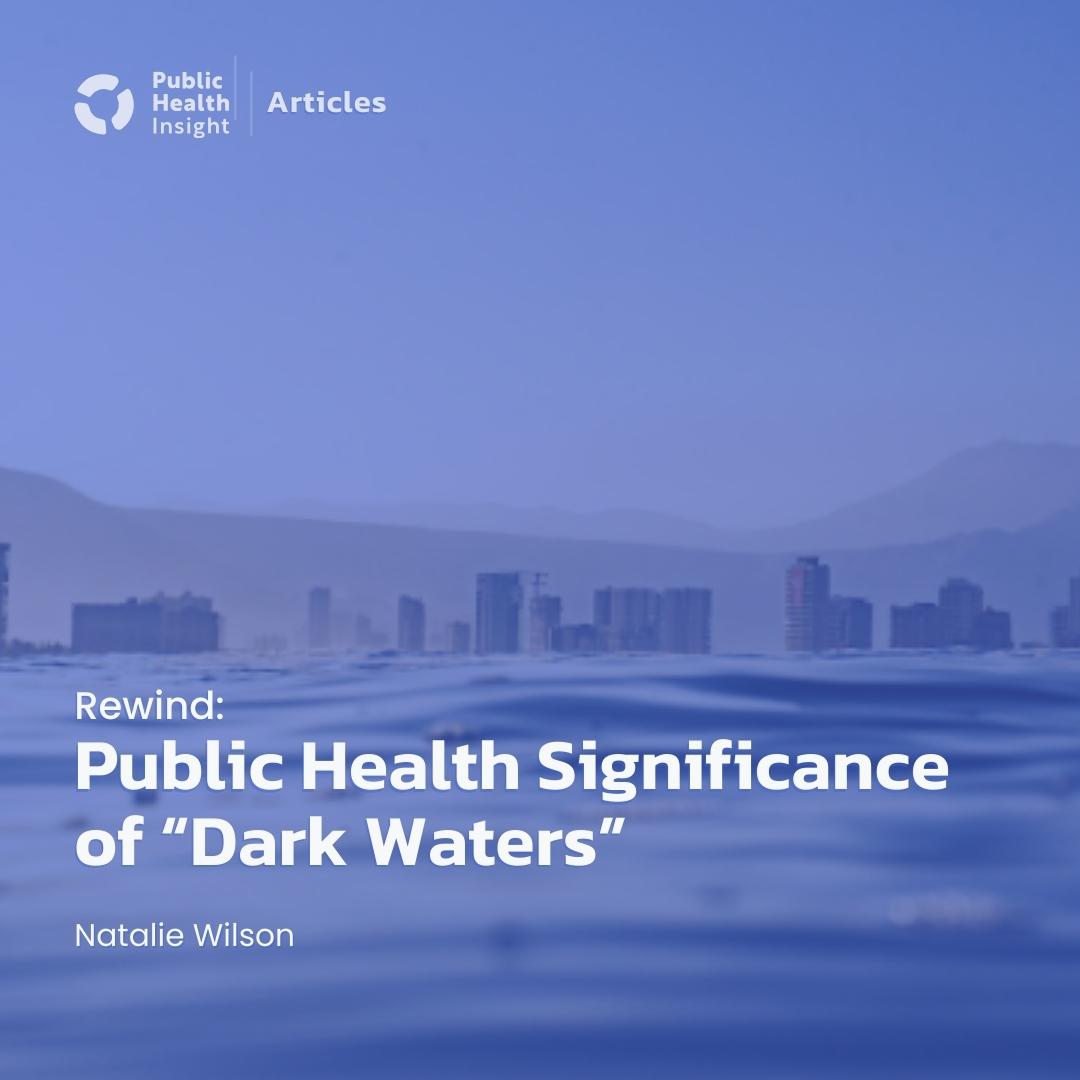
In one of the episodes on the Public Health Insight podcast, the team kicks off their Rewind series by examining the public health relevance of the 2019 film, Dark Waters. Starring Mark Ruffalo and Anne Hathaway, the movie follows the true story of Robert Bilott’s lawsuits against DuPont manufacturing for their widespread pollution of waters in West Virginia and Ohio.
20/11/2023
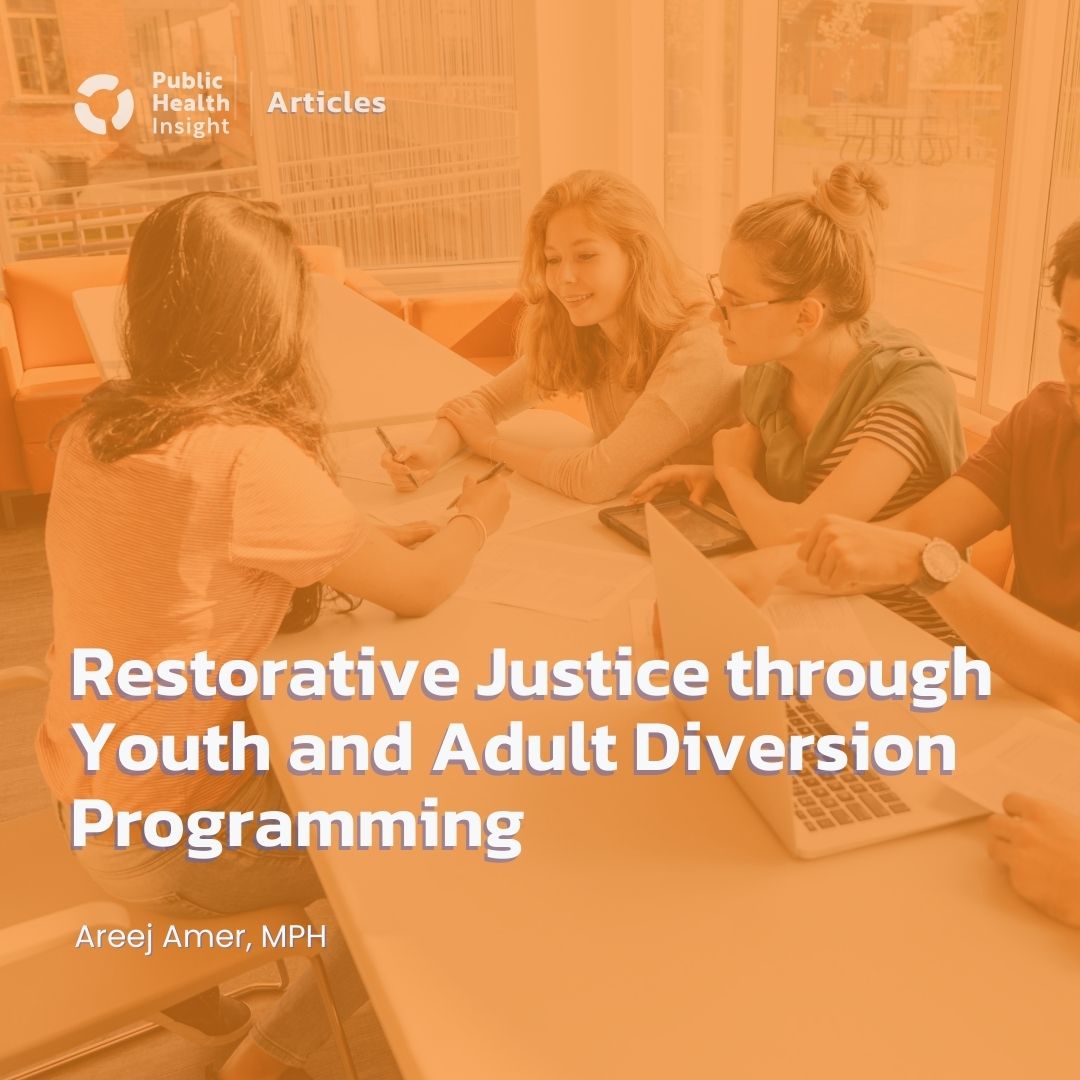
This week’s podcast episode explored the several layers of restorative justice in the programs offered by St. Leonard’s Community Services (SLCS) with Michael Oates, the Executive Director of SLCS. With various examples, real-life experiences and engaging anecdotes, Michael explains the importance of programs offered by St. Leonard’s for the London community. Along with that, Michael sprinkles some career advice in this information-packed, engaging episode, making it a must-listen.
6/11/2023

The Public Health Insight (PHI) podcast series launched in March 2020 in the midst of an unprecedented global health emergency. Co-founded by a small group of public health professionals, PHI’s weekly podcast was a way to share insights and experiences on a range of public health, global health, and population health topics. PHI has since rapidly grown into a recognized name in public health podcasting, now reaching listeners in over 130 countries and more than 3000 cities. To date, PHI has released over 140 episodes covering a range of subjects including topical, current areas of public interest such as vaccine hesitancy, the opioid crisis, and mental health as well as issues that are not always thought of as health related like homelessness, racism, and climate change.
16/10/2023

Regardless of where you are in your academic or professional career, there are some questions to consider before submitting applications to public health programs. In episode 96 of the Public Health Insight podcast, co-hosts Leshawn Benedict and Gordon Thane reflect on their own experiences to help guide others as they prepare their applications and decide which public health master’s program to choose.
1/10/2023

Even though TikTok has incredible reach, public health researchers know very little about the adverse effects of the platform. In episode 95 of the Public Health Insight podcast, Leshawn Benedict speaks with Marco Antonio Zenone, a Ph.D. student at the London School of Hygiene and Tropical Medicine who co-authored a commentary piece called: ‘TikTok and public health: a proposed research agenda.’ Together, they discuss the six public health-related concerns explored in the paper, the impacts of these concerns on the younger demographic of Tiktok and the urgency of further research on these concerns.
25/9/2023

Science communication: the process of sharing, educating, and informing others about scientific topics. It might sound straightforward, but communicating scientific ideas can be more nuanced than it seems. Scientists have always had to communicate their ideas, but as information has become more accessible in recent years, the art of science communication has become a critical skill, particularly on social media to help general audiences understand what they are seeing online about science.
18/9/2023

Antimicrobial resistance (AMR) is considered one of the top ten major threats to global health according to the World Health Organization (WHO). Worldwide, 700 000 people lose their lives due to AMR each year, and experts predict this tally could reach 10 million by the year 2050 without intervention (Charlton, 2020). To reduce this risk, immediate action on a global scale is needed. In episodes 89 and 90, the PHI team chats with Oliver Schacht, the CEO of precision medicine company OpGen, about rising rates of AMR and steps that healthcare providers, policymakers, and individuals can take.
28/8/2023

Homelessness is a complex human rights and public health issue that affects people living in cities across the world. In Episode 87, the Public Health Insight Podcast Team together with Linda Gibbs and Tamiru Mammo of Bloomberg Associates examine the intricacies of addressing homelessness. In Episode 88, the group continues their discussion by exploring opportunities that emerged from the COVID-19 pandemic and highlight some unique solutions to homelessness from Linda and Tamiru’s co-authored book, “How Ten Global Cities Take on Homelessness: Innovations That Work.”
14/8/2023

Many experts argue that contemporary understandings of mental health are hindering efforts to prevent mental illnesses at a population level. In episodes 85 and 86 of the Public Health Insight podcast, the team sits down with psychologist and sociologist Dr. Corey Keyes to discuss this critical shortcoming and explore an alternative conceptualization of mental health and illness.
31/7/2023

In episodes 83 and 84, the Public Health Insight team featured Dr. Andrea Sereda to share her experiences regarding the opioid crisis as a street-level outreach physician. We discussed how the current opioid crisis mirrors experiences from alcohol prohibition, and harm reduction strategies through safe opioid supply. In this blog post, we will expand on those conversations to learn more about how the opioid crisis evolved to where it is today.
24/7/2023

LinkedIn is considered the leading social media platform for professional networking. Employers and recruiters actively investigate the digital footprints of potential candidates before reaching out or making hiring decisions. Keeping a well-organized, captivating LinkedIn profile is now crucial to modern job hunting and career progression. In episode 82 of the Public Health Insight Podcast, the team is joined by Kamara Toffolo, Resume Writer, LinkedIn Consultant, and Job Search Strategist, to talk about strategies that can make a LinkedIn profile stand out in your network and impress potential employers.
15/12/2022

Could your cover letter be ruining your chances of landing that dream job? When done right, a cover letter can help employers understand why you’re the right fit for their company. But when done wrong, they often serve as more of a hindrance than a help. In this week’s episode, the Public Health Insight team speaks with job search expert Kamara Toffolo to learn how to write an effective cover letter. Keep reading to see what tips and tricks she had to share!
15/12/2022

Your resume is one of the first glimpses of you that a future employer will see. A strong resume can be greatly beneficial to help the reader get an idea of your skills, experiences, and if you would be a good fit for the position. Your resume may look a bit different at different stages of your career, but the core message that you want to portray will stay the same: why are you the most qualified candidate for the role?
30/10/2022

From new grads to experienced professionals, a common question has arisen over the past few years: how does my previous job search strategy hold up in a post-pandemic job market? Although different generations of professionals may vary slightly in their job search strategies, the important concepts remain the same throughout.
26/9/2022

Worldwide, our communities are aging. It’s estimated that by 2050, 1 in 5 people globally will be over the age of 60. In Canada alone, 35% of the population will be 55 or over by 2036 (Peterborough Council on Aging, 2017), making investment in healthcare resources and age-friendly infrastructure more urgent than ever.
12/9/2022

‘Healthy Aging’ has become a focus and key buzz term in many health agendas. The expression is often coupled with images of smiling, ultra-fit silver-haired seniors undertaking highly physical challenges or exploring exotic places. While people are certainly living longer and should be supported to continue to engage fully with society, this ideal of hyper active older adults does not consider the diversity of the aging experience. Those who go through physical deterioration, mental decline, frailty, and other impacts of aging are also entitled to a high quality of life, but often find themselves isolated.
18/8/2022

In episodes 127 and 128, Dr. Annette Regan from the University of San Francisco joined the Public Health Insight Podcast to discuss the field of epidemiology and why public health needs more epidemiologists. Dr. Regan is a perinatal and infectious disease epidemiologist who has held positions with the CDC, state health departments, and is now working in academia. In this blog post we will address some of the most common questions about studying and working in epidemiology.
9/8/2022

Love or despise it - networking is undoubtedly an important tool for budding professionals, helping to gain valuable and practical information and possibly even a job. Now, more so than ever, networking has become critical as the COVID-19 pandemic has changed how we interact with people and dramatically reduced opportunities for face-to-face contact. In episodes 73 and 74, the Public Health Insight team showcases why public health and global health professionals should use networking to learn from others in the field and advance their career goals.
28/6/2022
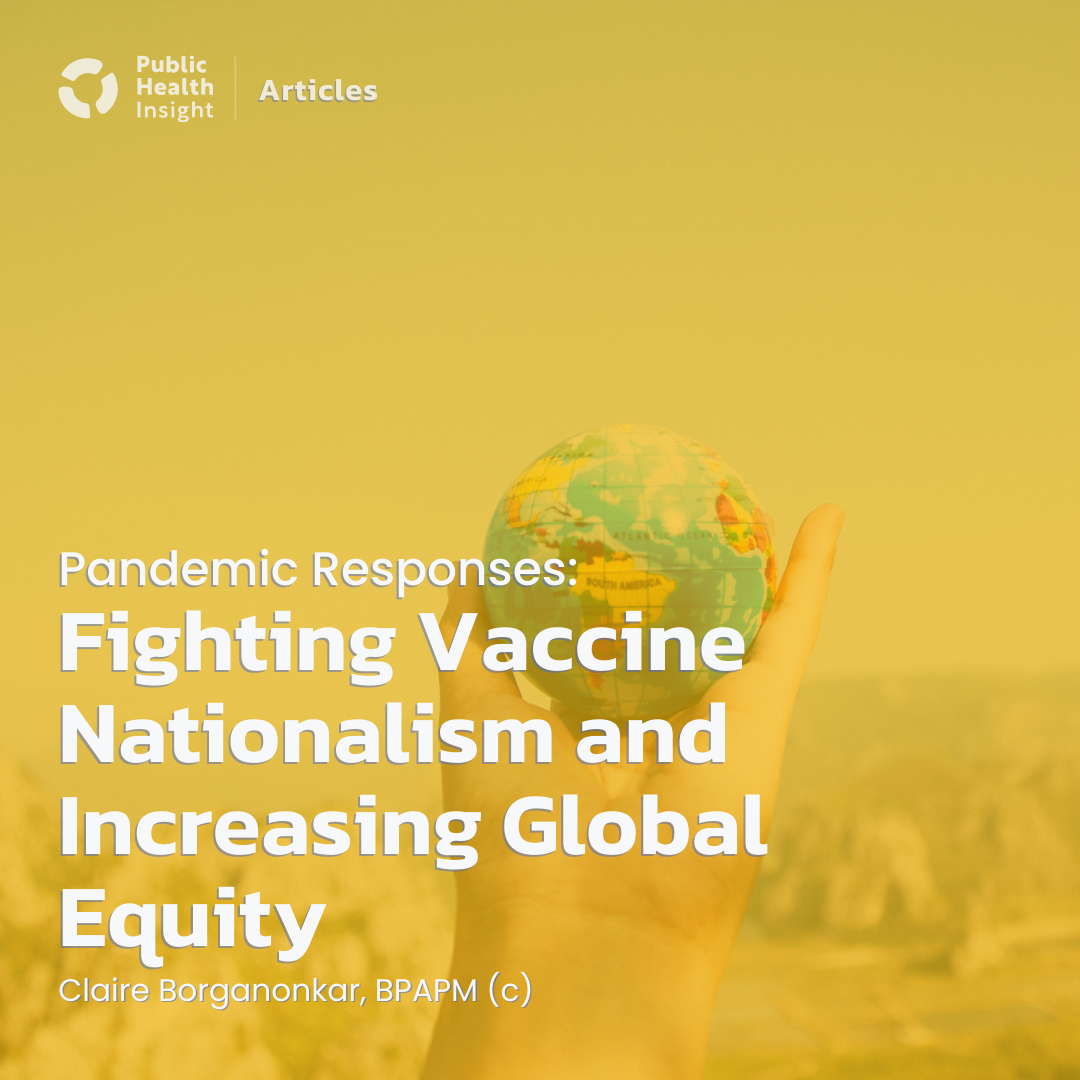
Since day 1 of the COVID-19 pandemic, global health experts have urged world leaders to prioritize global health equity as a crucial part of their pandemic responses. According to the World Health Organization (WHO), health equity can be defined as “the absence of unfair, avoidable or remediable differences between groups of people” that affect their ability to attain good health and wellbeing. Global health equity has emerged as a key issue during past pandemics, and COVID-19 has been no exception. Many high-income countries (HICs) – Canada included – have adopted self-interested policies, engaging in vaccine nationalism and failing to work cooperatively with the global community. This leaves other countries vulnerable to the effects of the virus, particularly low- and middle-income countries (LMICs).
5/6/2022
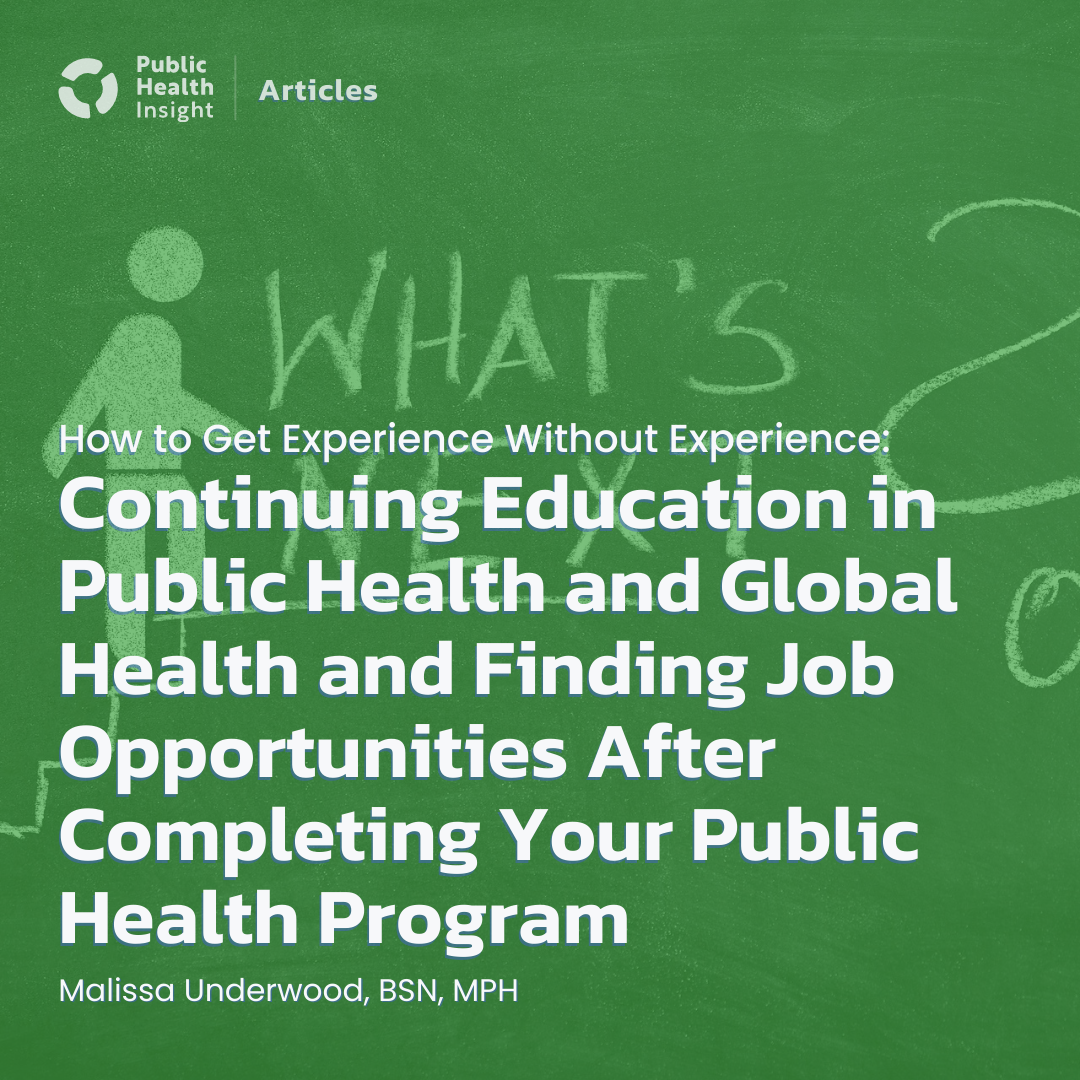
Working in the fields of public health and global health can be a rewarding experience, with the ultimate vision of achieving equity in health for all people worldwide. The global pandemic has inspired future practitioners to pursue public health and has underscored the urgent need for competent professionals to help address current and future challenges. Despite the increased demand for professionals across the health sector, breaking into a career in public or global health can be challenging. Episodes 67 and 68 of the Public Health Insight Podcast answer questions about pursuing graduate education in public health, careers in the field, and the skills and competencies required for success. In these episodes, the team chats with Dr. Greg Martin, a medical doctor working as a Specialist in Public Health Medicine based in Ireland. Dr. Martin is also the host of Global Health with Greg Martin, a YouTube ™ channel with resources for public health professionals including tips on finding the right global health jobs.
22/5/2022

With North America’s recent spotlight on the socioeconomic plight of Black and Indigenous populations, it is tempting to overlook the experiences of marginalization other cultural or racial groups have faced. The phenomenon of anti-Asian racism, however, ought to remind us that many segments of our society remain highly stigmatized, yet do not garner the attention within our information space to nearly the same extent. In this episode, the PHI team seeks to unravel widespread myths about Asian-Canadians as a “model minority”, explores the historical emergence of anti-Asian sentiment in Canada, and discusses the implications of the current COVID-19 crisis on anti-Asian perceptions and prejudices.
22/5/2022

March 11th, 2022 marks two years since COVID-19 was declared a pandemic by the World Health Organization. For many, this grim milestone may evoke feelings of despair, grief, and hopelessness as we all grapple with the reality of life post-virus. But we can also take some solace in knowing that humans have faced and survived this challenge before. A global pandemic, novel as it may seem to us, is nothing new to history. From the Black Death of the 14th century to the HIV/AIDS crisis of the 80s and 90s, infectious diseases have ravaged humanity since the dawn of time. These crises brought with them immense pain and suffering – but also taught us how to be more prepared for future pandemics.
8/5/2022
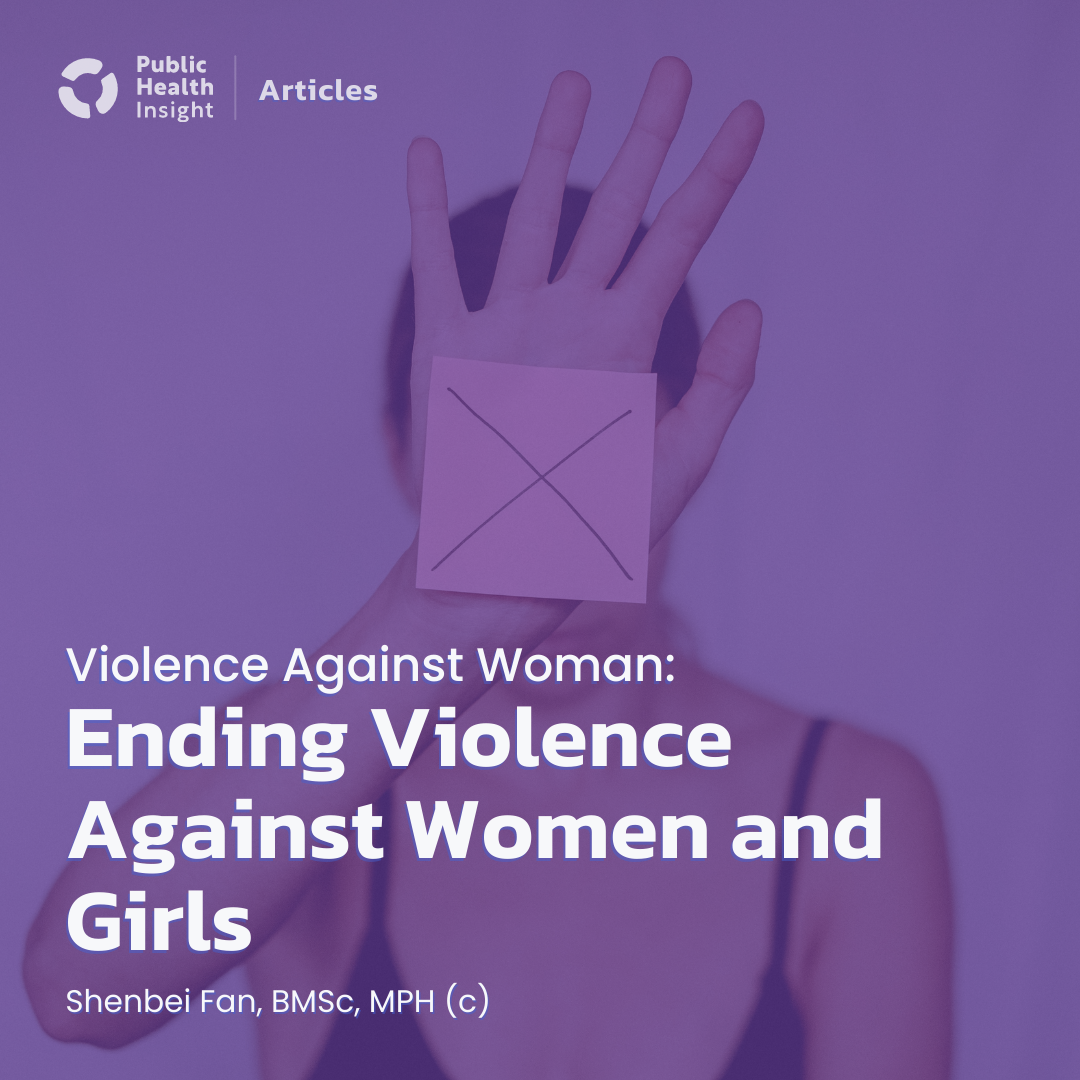
Gendered violence is a significant public health issue both in Canada and globally, affecting individuals of female gender in particular. Many women and girls live in circumstances of fear as a result of the deep-rooted dynamics of discrimination and power imbalances between genders. The COVID-19 pandemic has exacerbated the issue of gender-based violence in many communities, with individuals finding themselves confined to tighter living spaces than before the pandemic.
23/4/2022

Be it in the workplace, at school, or at home, thousands of individuals worldwide are subjected to some form of gender-based violence every day. Gender-based violence (GBV) is an umbrella term that describes any harmful act directed at an individual or group of individuals based on their gender identity, gender expression, or perceived gender (Statistics Canada, 2019). This may include intimate partner violence (domestic violence), sexual violence, and violence against women and girls, among many others. The term is often used to highlight the gender-based structural and power imbalances that exist within society and the ways in which they place women and other gender minorities at increased risk of experiencing violence (UN Women, n.d.). GBV is a deeply-rooted issue with several significant implications for public health and safety. Governments and policymakers do, however, have access to a wide range of tools and policy solutions to address and prevent it.
14/4/2022
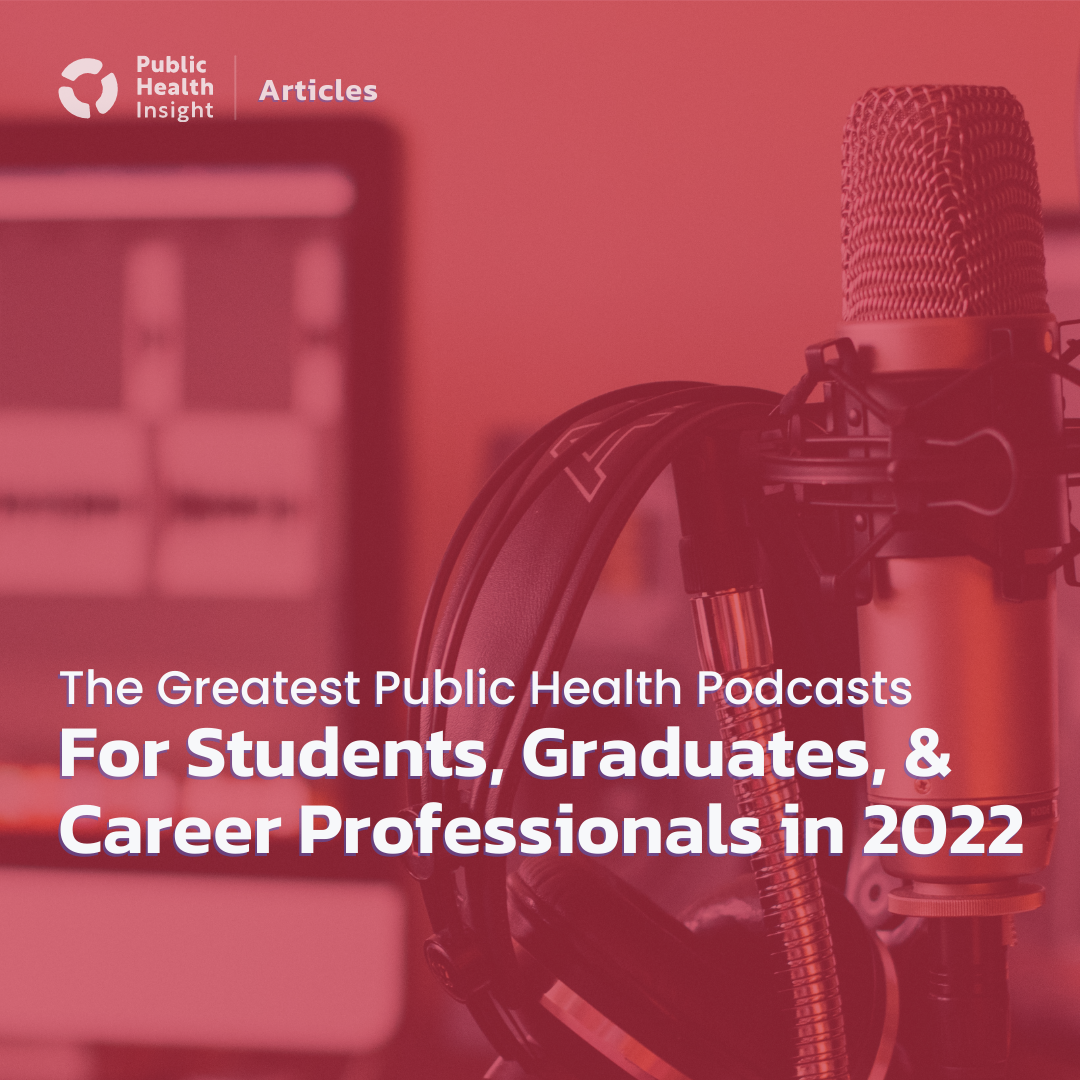
Podcasts have been gaining popularity with people, businesses, organizations, and industries, as an asynchronous medium to share information with diverse audiences. Podcasts are digital audio files, often released in an episodic format, made available on the internet for downloading or streaming from a computer or mobile device through Really Simple Syndication (RSS) feeds. In the United States and Canada, podcast consumption across all genres or categories has been growing steadily since 2008, with the number of podcast listeners expected to double between 2019 and 2024. Many people who listen to podcasts tend to show a preference for this medium over books and scientific journals. In the context of public health, podcasting is being recognized as an effective medium to disseminate health-related information to the general public, and to bridge the gap between evidence-based research and students or practitioners.
7/4/2022

As we pass the two year since COVID-19 was declared a pandemic by the World Health Organization, I want to ask you, my fellow public health professionals, how are you doing? Are you still feeling energized by the spotlight the pandemic has shone on public health, enthusiastically showing up for work every day? Or are you, like me, feeling stressed out, exhausted, cynical and disconnected from your work, dreading the sound of your alarm clock going off every morning?
7/4/2022

It has been two years since Public Health Insight launched our podcast in March of 2020, and we are excited to celebrate this incredible milestone with our followers in over 1,500 cities in more than 100 countries, who have supported us along the way. We couldn’t have done it without you.
2/4/2022

The Socioecological Model (SEM) has been widely adopted in public health and considers how health is determined by complex, interrelated factors at individual, community, and environmental levels. This model can provide insight into the disproportional impact of COVID-19 on specific populations. In this episode of the Public Health Insight Podcast series, the team explores the COVID-19 pandemic as a case study in applying the principles of the SEM.
29/3/2022
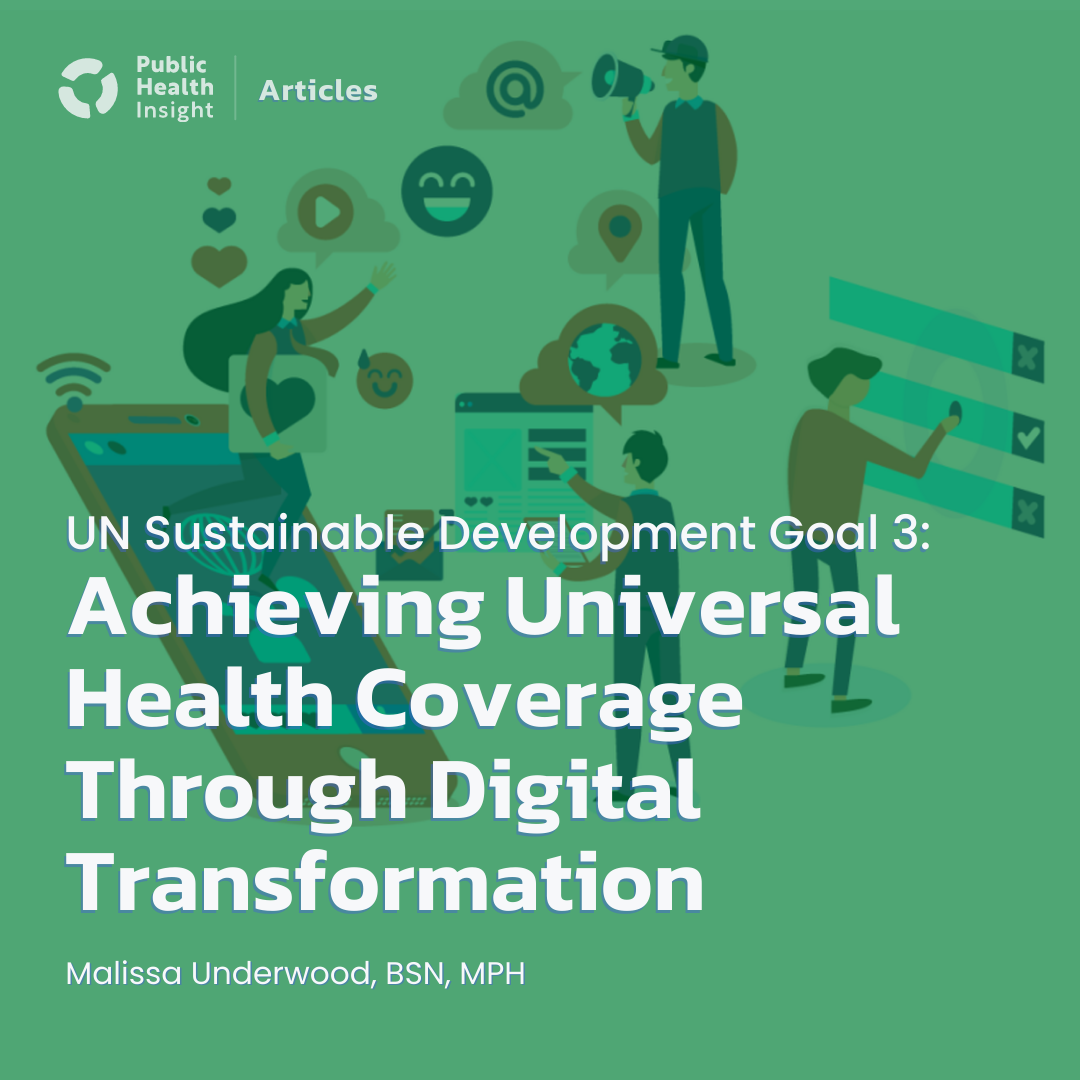
Digital technology has transformed life as we know it - from automating daily tasks, to essentially allowing us to carry around pocket-sized computers. Health systems are also rapidly transforming as new technologies emerge.
15/3/2022
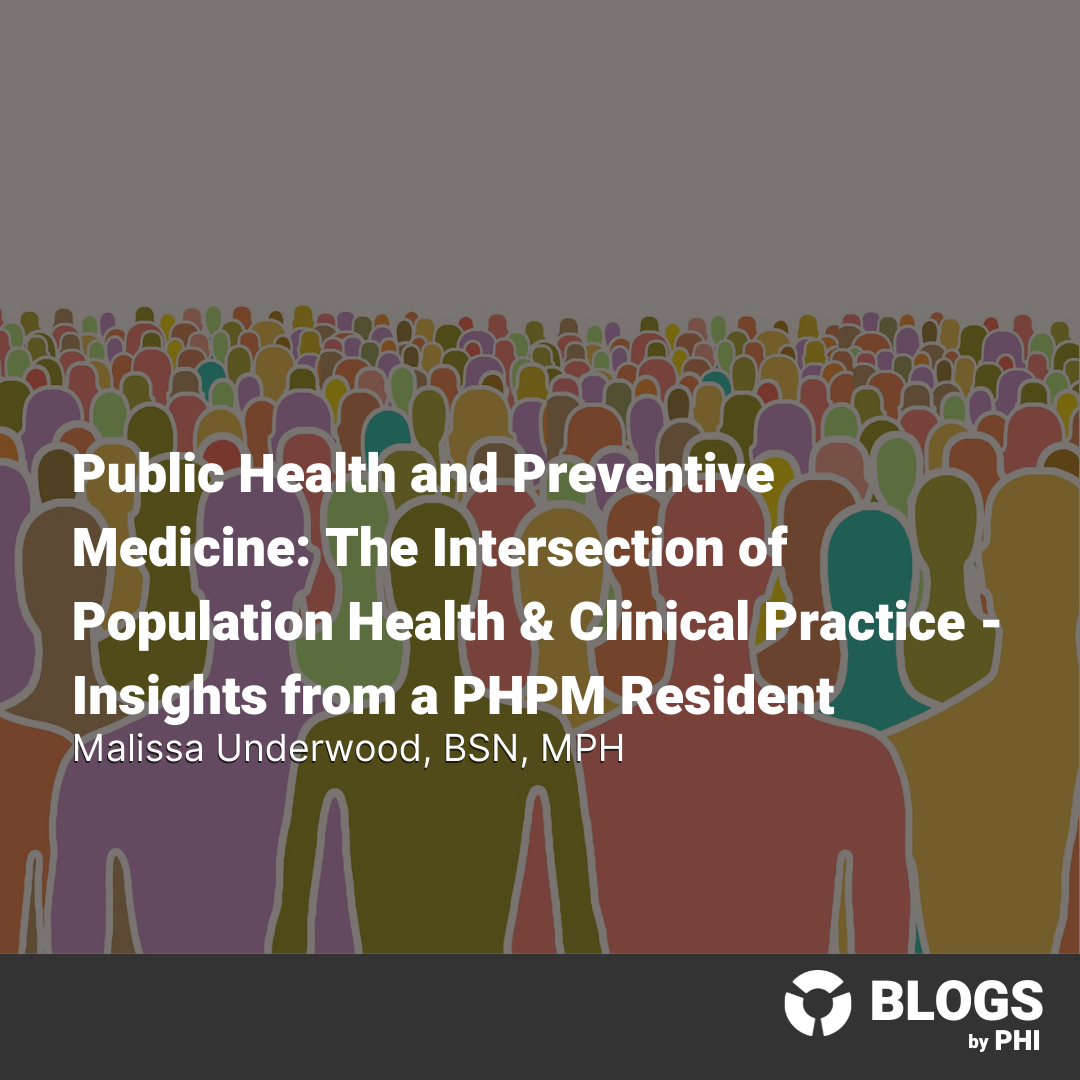
For many, the term ‘medical doctors’ invokes images of people in white coats practising as family physicians, paediatricians, or surgeons that treat individual patients. One specialty that is often overlooked is Public Health and Preventive Medicine (PHPM), a discipline that focuses on treating entire communities or populations. In their 54th and 55th podcast episodes, the Public Health Insight team chat with PHPM resident Dr. Yipeng Ge to find out more about the journey into this critical branch of medicine.
14/3/2022
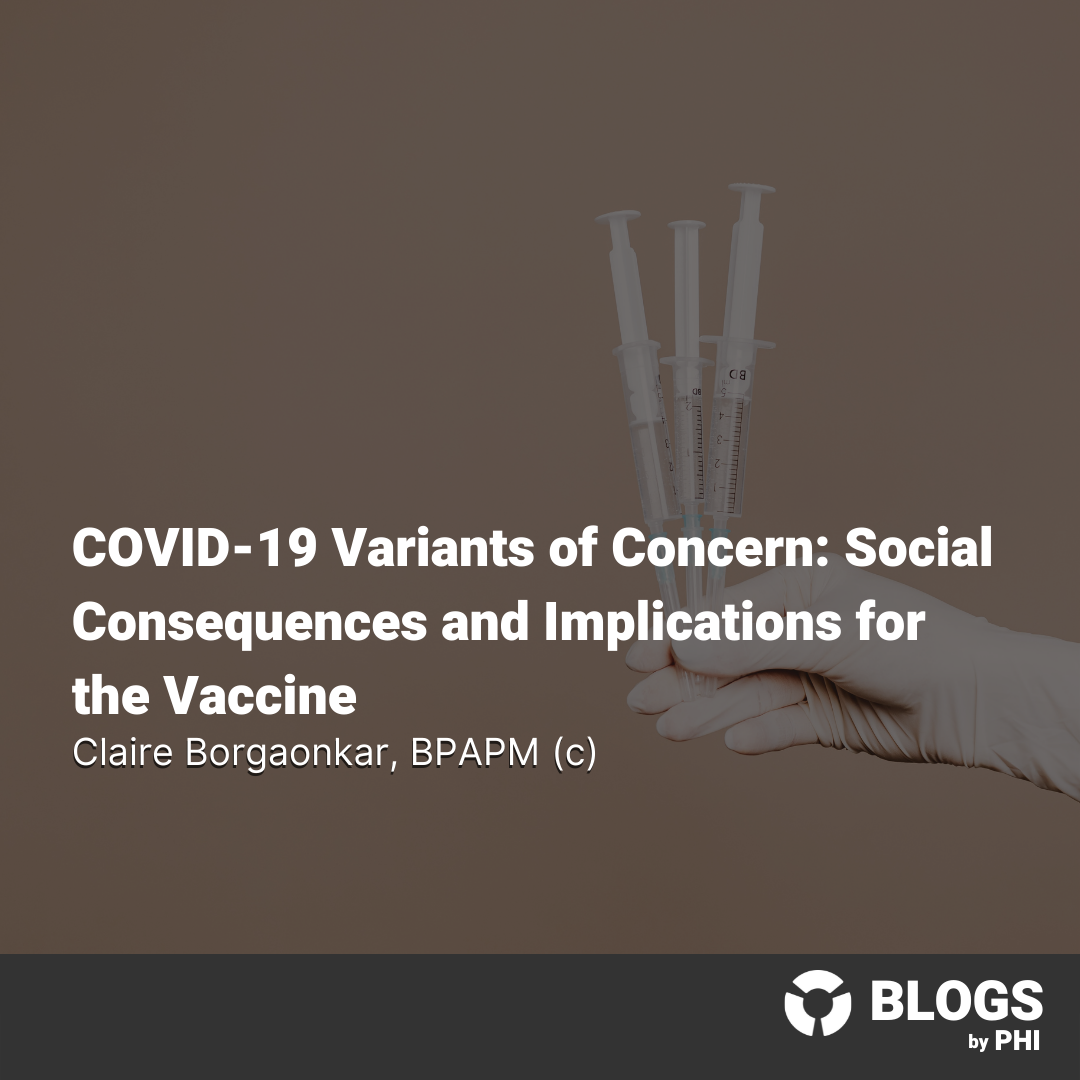
At the time of this writing, Canada (and, indeed, most of the world) is still in the midst of the Omicron wave of the COVID-19 pandemic. The Omicron variant of SARS-CoV-2 (the virus that causes COVID-19) is remarkably transmissible, with experts predicting that one person can infect between three to five additional people on average (Scribner, 2021). It’s the latest in a growing list of SARS-CoV-2 variants that have emerged as the virus has mutated over time. Mutations are a common phenomenon among most viruses, and most are relatively harmless. But some can produce more transmissible and/or severe variants capable of dealing significant damage to healthcare and public health systems. As more SARS-CoV-2 variants continue to emerge, many are left wondering about the implications for current vaccines and how the trajectory of the pandemic may be affected.
4/3/2022
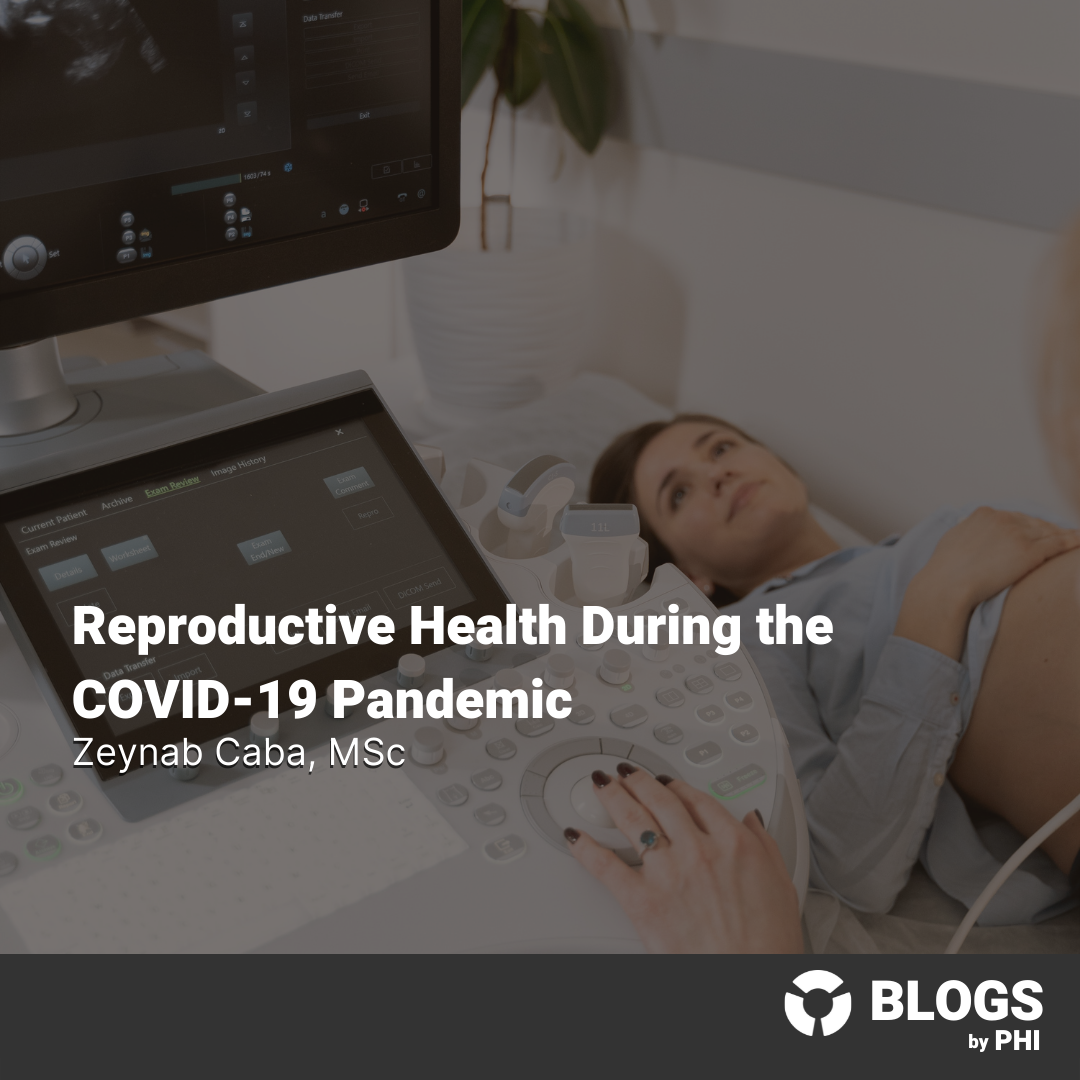
Global responses to the COVID-19 pandemic have primarily focused on reducing and preventing direct infections from the virus. Meanwhile, the pandemic is having a profound impact on how people live their lives and how they access different health services. COVID-19 has been shown to affect people’s physical, mental, and social health (Lindberg et al., 2020). Mortality data on COVID-19 suggests severe health outcomes for men, however, there is increased concern that the disease disproportionately affects women socially and economically (Kotlar et al., 2021). Despite this data, gaps still remain when considering the impact of COVID-19 on sexual and reproductive health (SRH). Poor SRH has wider impacts on peoples’ lives, including intergenerational effects and economic impacts (Mann et al., 2018). Therefore it’s necessary to further examine the global effects of the COVID-19 pandemic on sexual and reproductive health.
27/2/2022
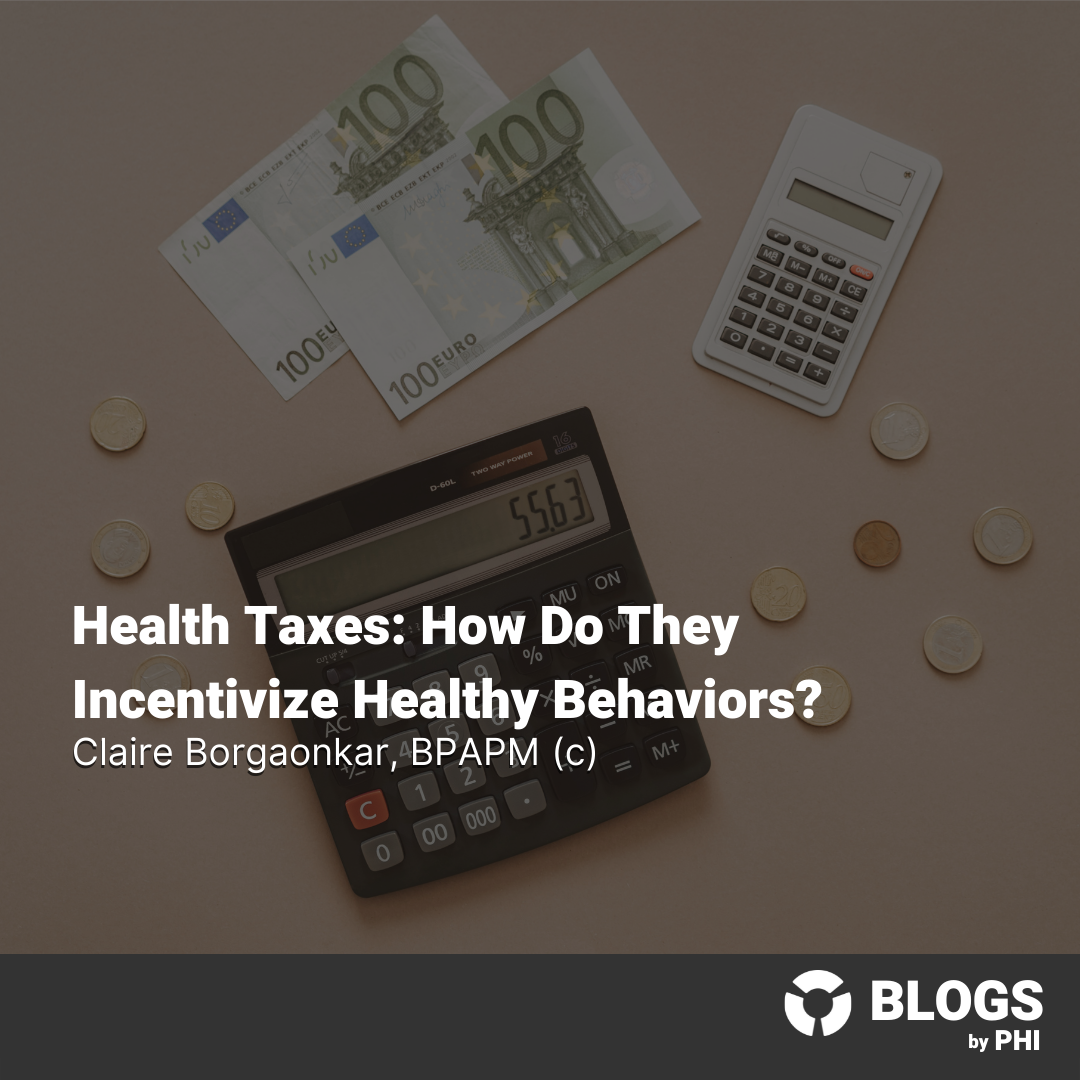
Imagine you’re on your way to the grocery store to buy a case of your favorite soda. When you get to the cash register, you realize that the price of soda has increased by 20% since the last time you went shopping. You discover that this is due to a new health tax imposed by the government on all sugar-sweetened beverages. Do you still buy it?
25/2/2022
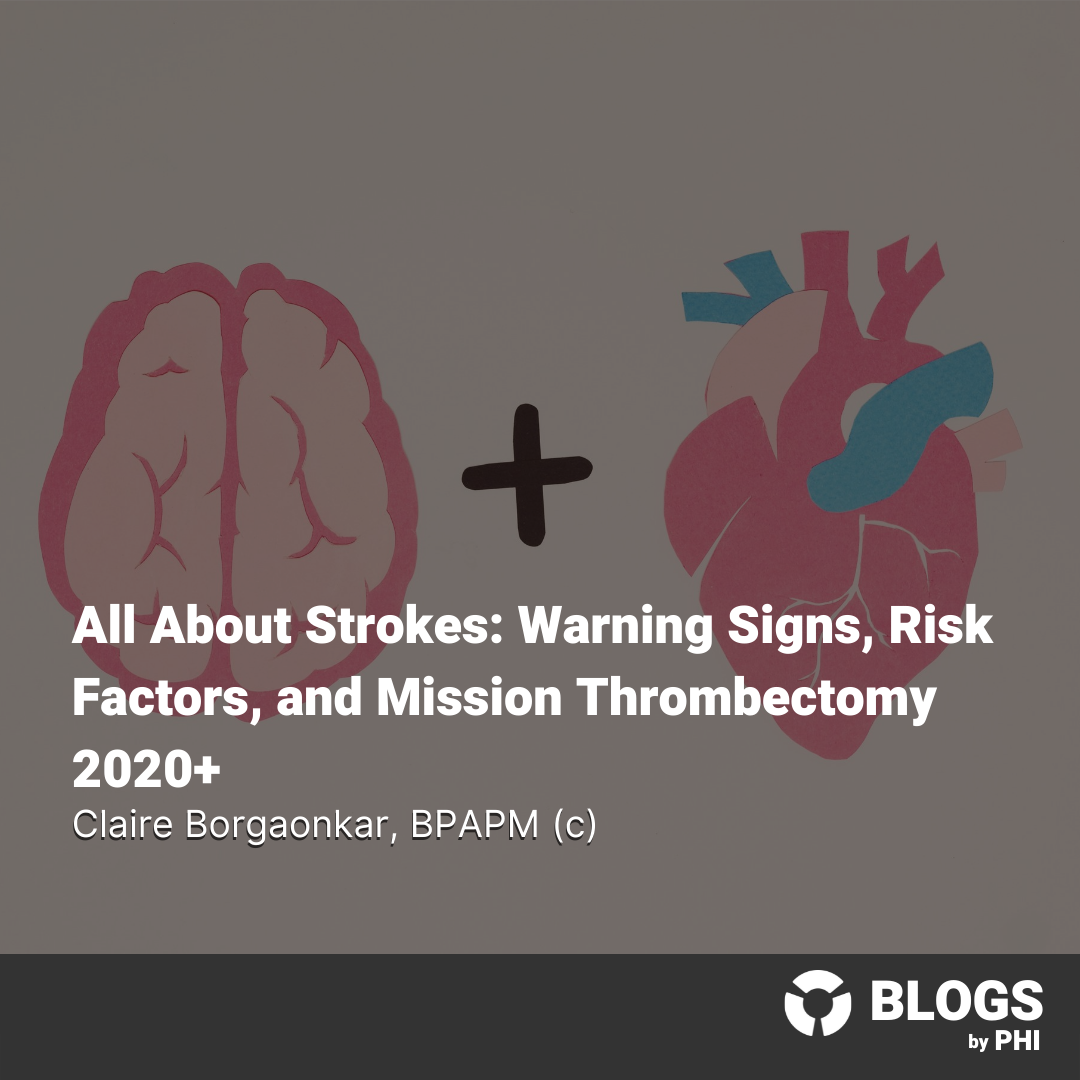
Every year, about 15 million people experience a stroke worldwide (World Health Organization, n.d.). Among them, 5 million lose their lives and another 5 million are left with long-term disabilities and health complications (World Health Organization, n.d.), including difficulty speaking, loss of bone density, memory problems, and brain swelling, among others (National Heart, Lung, and Blood Institute, n.d.). This makes strokes one of the leading causes of global death and disability.
17/2/2022
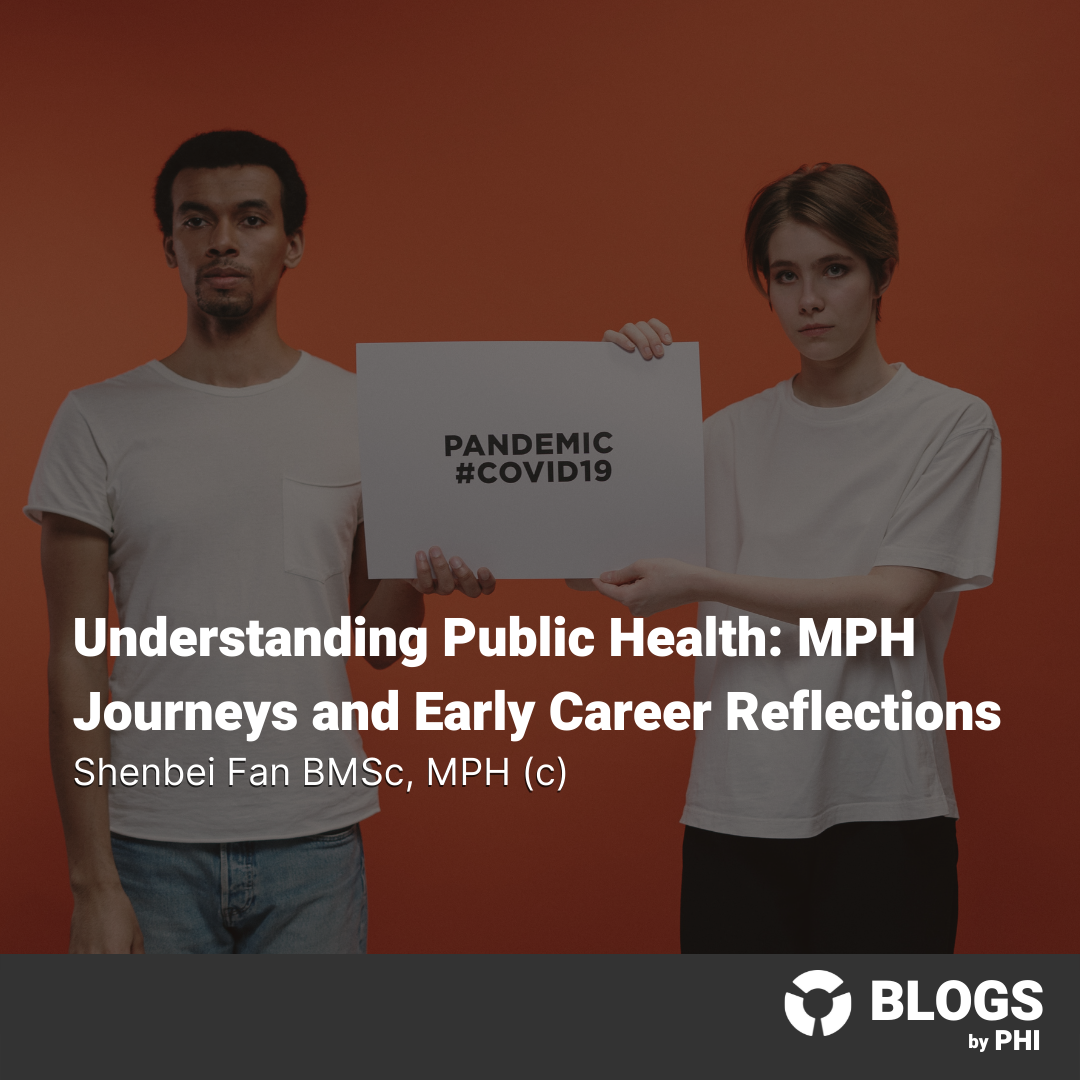
A special essay by Shenbei Fan, BMSc, MPH (c)
17/2/2022
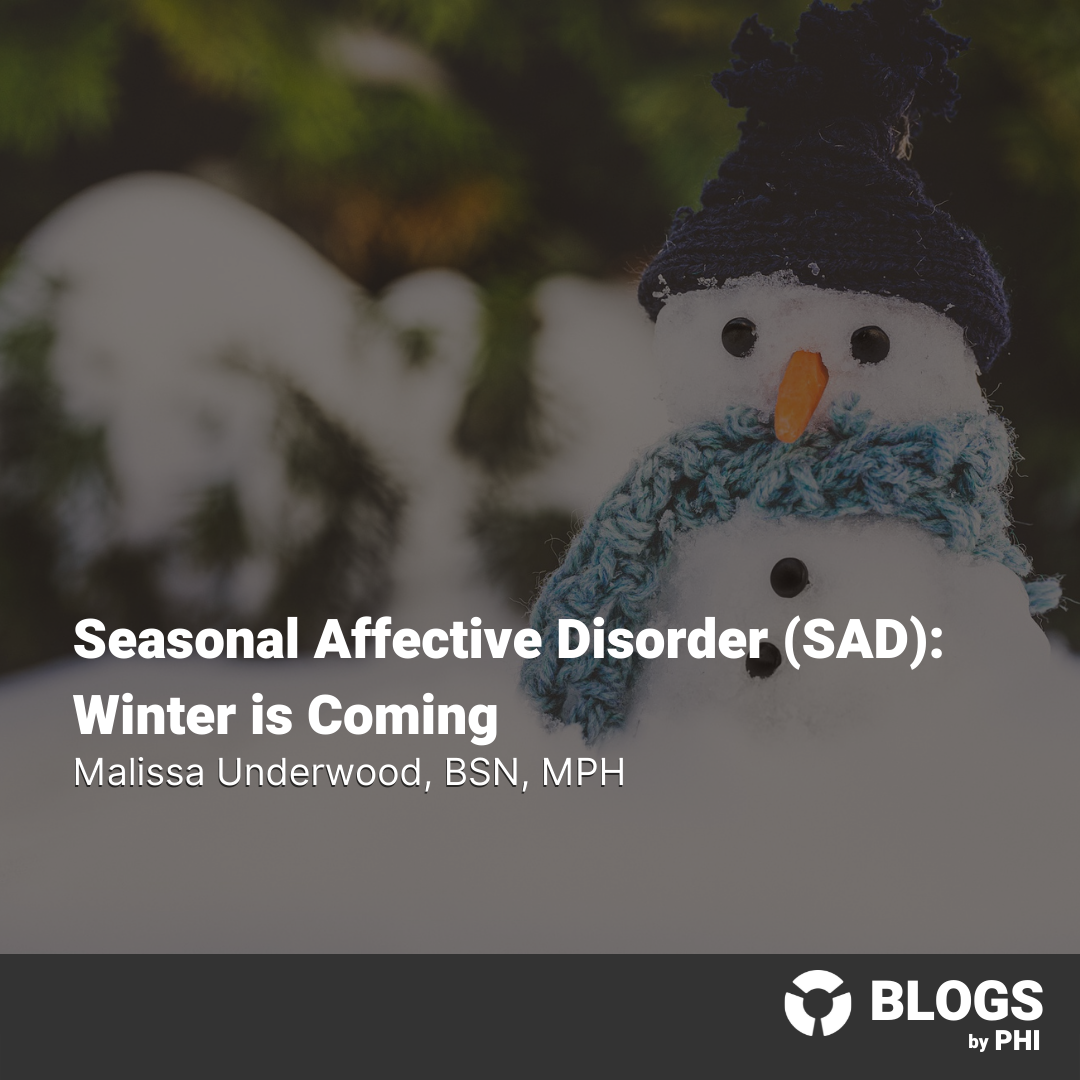
Many of us living in the Northern Hemisphere are all too familiar with the sight of leaves gradually changing from green to red, orange, brown, and eventually dropping. When we see this, some may feel saddened as summer fun and late, light evenings give way to autumnal darkness and frigid temperatures. The desire to hibernate in a warm bed rather than face a cold, dark morning can translate into feelings of low energy and difficulties in getting motivated to complete daily tasks. This lower mood experienced in colder months is sometimes referred to as ‘winter blues.’ For some, however, these feelings can be overwhelming, drastically impacting daily life and necessitating clinical evaluation for seasonal affective disorder (SAD).
7/2/2022

Every year, tens of thousands of people lose their lives to suicide. The issue is among the leading causes of death worldwide, yet is rarely discussed in an open and non-stigmatizing manner. It’s estimated that for every one person who dies by suicide, 20 others have experienced an attempt (United For Global Mental Health, 2021), highlighting the need for more thorough prevention and intervention measures. Social stigma and negative perceptions surrounding suicide have proven to be some of the largest barriers to preventing it. Many individuals and communities still discuss the issue in stigmatizing terms and view the victims of suicide as selfish, shameful, and cowardly. But these perceptions are not impossible to overcome – indeed, the emphasis that the COVID-19 pandemic has placed on mental health and wellbeing could usher in positive change when it comes to suicide prevention and awareness.
30/1/2022
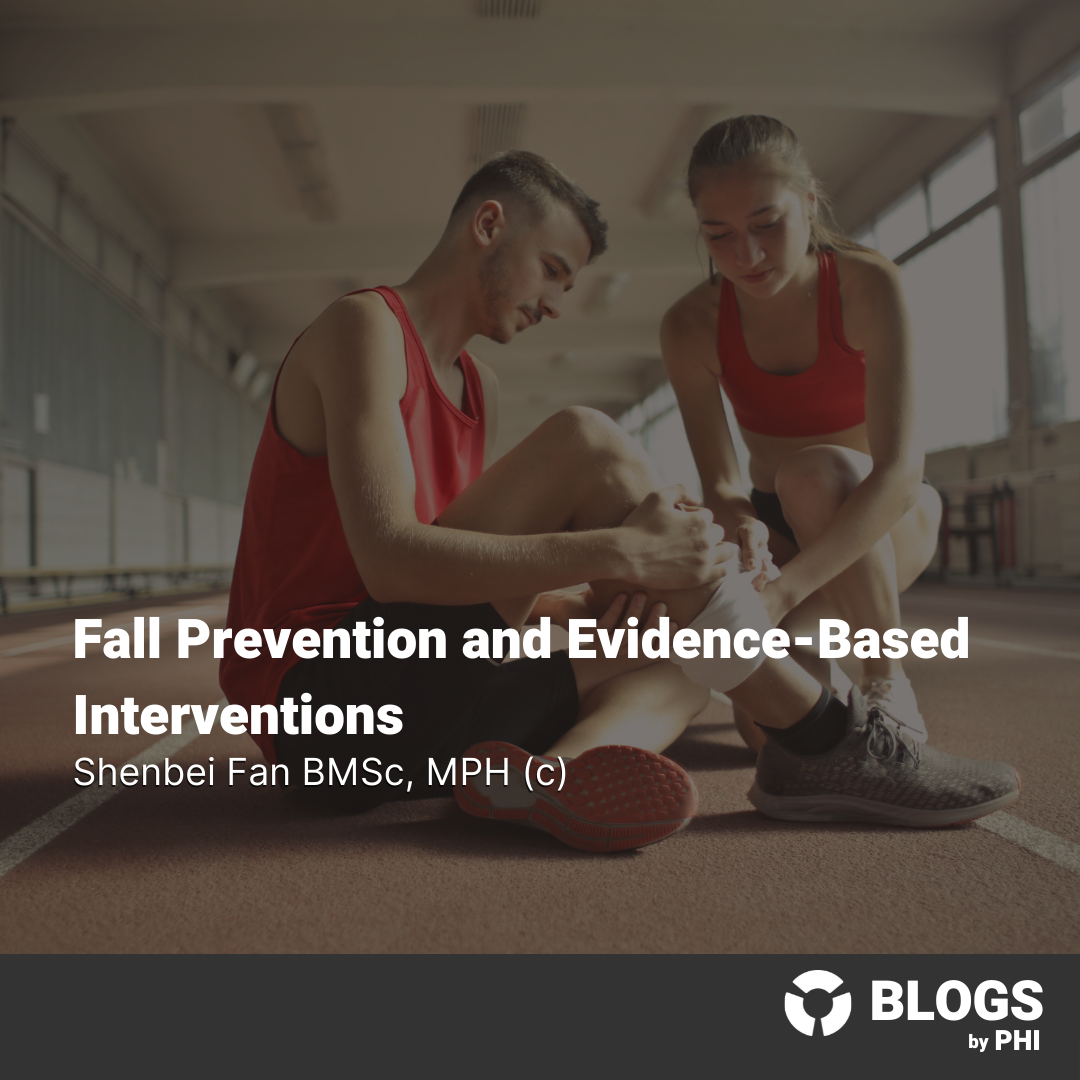
An often overlooked, yet important, topic in public health is the issue of fall prevention. This is perhaps understandable, because falls are such a common life occurrence that we, as a society, are often inclined to dismiss them as a mundane phenomenon unworthy of serious professional attention. To ignore the need for fall prevention, however, is to leave a significant segment of our population at risk of potentially fatal physical endangerment. This would be immensely detrimental to our collective well-being, and unacceptably burdensome on our healthcare infrastructure. Today, the PHI team will discuss the causes and risk factors behind falls, their impact on our socio-economic fabric, and possible solutions to this often neglected (but serious) public health problem.
23/1/2022
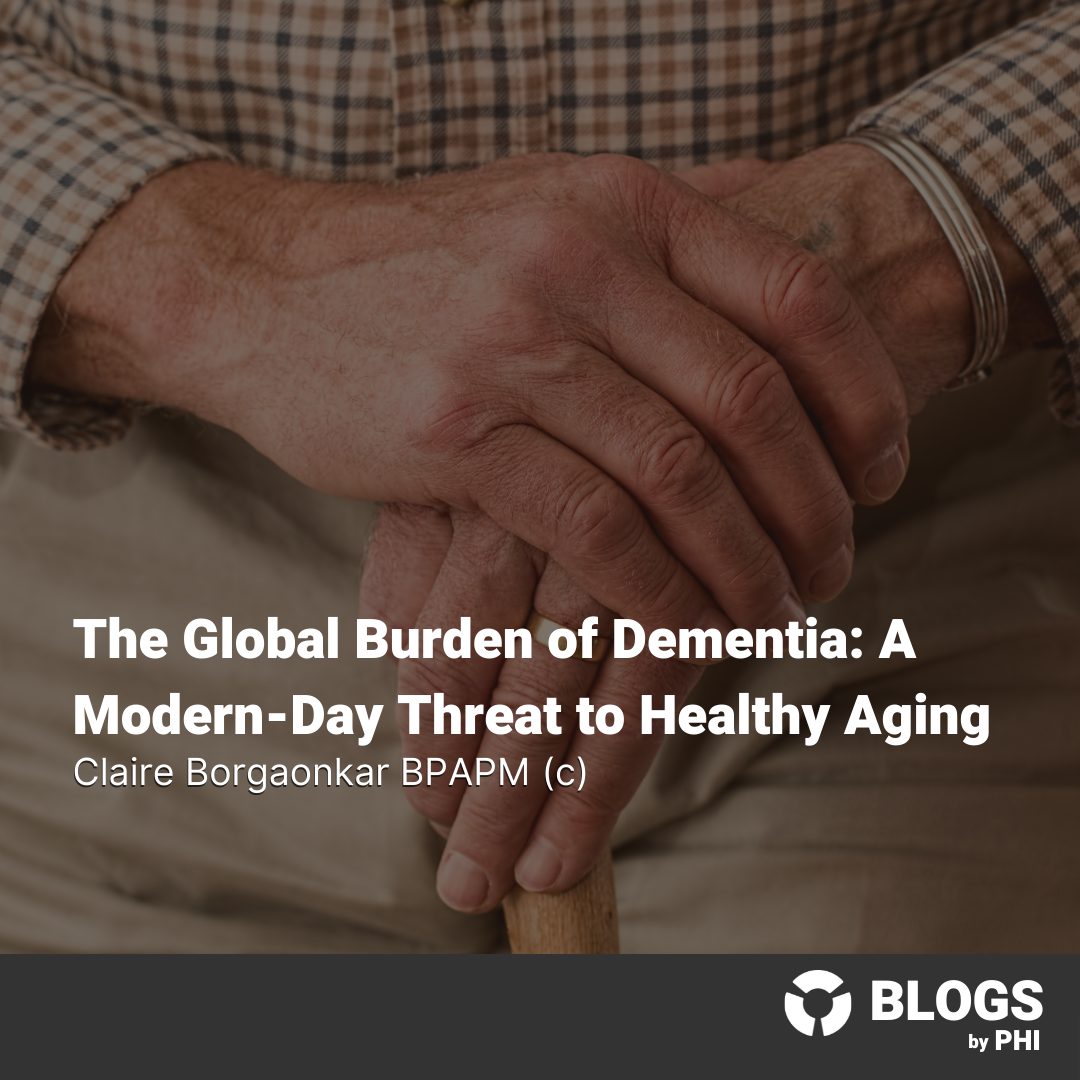
Just 100 years ago, in 1913, the global life expectancy was only 34.1 years old (Our World in Data, 2019). Today, that age has jumped to 72.8 years (Macrotrends, 2021), with life expectancies in some high-income nations reaching above 80 years (Our World in Data. 2019). Thanks to improvements in technology, medicine, and social and environmental conditions, people around the world are enjoying longer, healthier lives. As a result, the average age of populations has increased. In Canada, seniors (age 65+) make up 16.9% of the current population, and are expected to grow to 20.1% by 2024 (Memoryz, n.d.). But as the aging population grows, so too does the incidence of age-related illnesses. Dementia is among the most common of these – an estimated 50 million people worldwide are living with the illness, with numbers expected to rise in years to come (Memoryz, n.d.). Most nations, however, are not equipped to handle this influx in cases, and misconceptions and stigma surrounding the condition only serve to make the problem worse.
23/1/2022
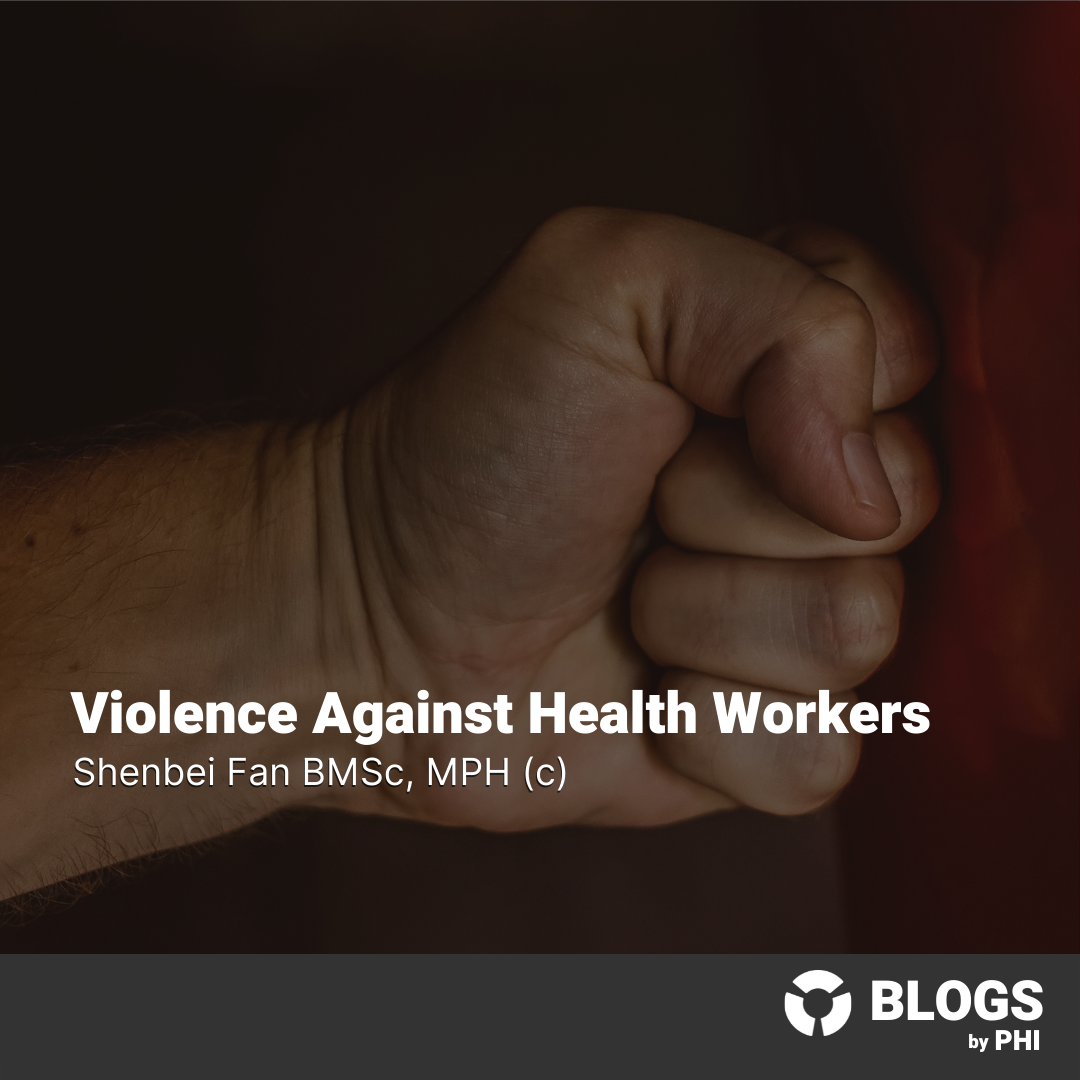
Health workers play a crucial role in the functioning and flourishing of our society. In hospitals, homes, and sites of natural disaster within Canada and around the world, these essential members of the workforce play a vital role in protecting and preserving the physical and mental well-being of populations. In spite of this, there is increasing concern that health workers are being subject to mistreatment in the form of aggression, harassment, and other forms of abuse. This episode explores the disturbing phenomenon of violence against health workers by attempting to unpack its root causes as well as offering potential solutions that can point the way forward for a profession where such issues are too often neglected.
18/1/2022

It is often said that education is the foundational pillar of lifelong success. Indeed, a theme familiar to many modern families is the paramount importance parents place on getting their children into a good school or university in the hope that this crucial choice will propel them into lucrative careers. What is sometimes overlooked in our contemporary society, however, is the wealth of evidence suggesting that education is also an important social determinant of health. The ability to process incoming information effectively and make informed choices about one’s own well-being is influenced, in large part, by one’s depth of exposure to higher-order learning. In this episode, the PHI team examines the intersectionality between ethno-racial and socio-economic disadvantage, on one hand, and the often glaring educational disparities that exist between different segments of North American society. They argue that establishing equity in education ought to be a key element in our collective push to promote good health for all.
18/1/2022

Being an issue with multiple intersecting factors, the opioid crisis is a complex epidemic that is affecting the everyday person each day. There have been many approaches to this issue, such as addiction treatment and abstinence – where drug use is prohibited. Though abstinence is a well-supported approach among politicians and the general public, it fails to reach out to those at risk for opioid-related overdoses. As opioid use can lead to unintentionally fatal overdoses, the purpose of harm reduction is to minimize the negative impacts of drug use. In this article, we will be looking at the harm reduction strategy of Safe Consumption Sites.
8/1/2022

Contemporary discourse commonly frames the root causes of good or poor health as a primarily biomedical phenomenon. We are told that it is the intersection of diet, lifestyle, genetic, and environmental elements that determines how susceptible we are to a given disease. Indeed, the common narrative holds that if we eat well, sleep well, exercise well, and are fortunate to be born into a “good” family, we should not worry about the prospect of poor health. Things are not quite so simple in reality. Consider that we live in a society marked by a stark stratification in the way resources are distributed. Some are better off; others are worse off. Some have ready access to tools and strategies that can help them maintain good health; others have very limited access. This is why it is important to acknowledge health as not solely a biomedical phenomenon, but a sociological phenomenon as well. In this episode, the PHI team examines the ongoing COVID-19 pandemic from a social determinants perspective, narrowing in on the need to acknowledge long-standing racial disparities in health outcomes at a population level.
8/1/2022
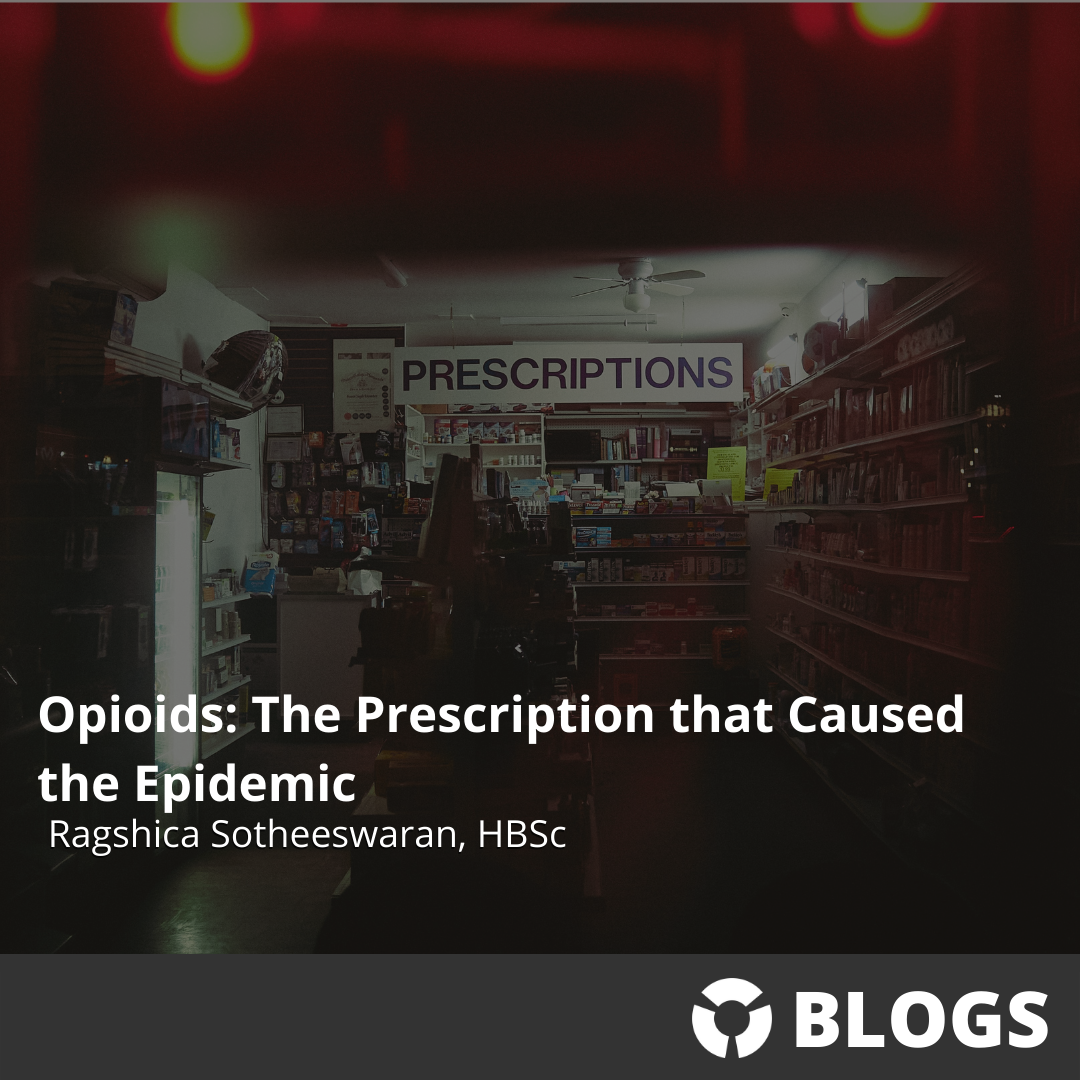
Opioid use has been recorded throughout history but has recently experienced a sudden and dramatic surge in opioid use and dependence. With about 62 million people using opioids at least once in 2019, and over 70% of drug use deaths being attributed to opioids (WHO, 2021), it can be said that there is more to this issue than we think. In this article, we will be investigating the origins of the current opioid epidemic, its implications, and methods to control it.
2/1/2022

In the wake of the COVID-19 pandemic’s Delta-driven fourth wave, governments around the world, including many Canadian provincial and local jurisdictions, are turning to so-called “immunity” or “vaccine passports” to safely re-open their economies and give vaccinated citizens a renewed sense of freedom following months of isolation and quarantine measures. The decision has proved incredibly controversial. While many welcomed the new policy, others labeled the initiative as discriminatory and haphazard. Demonstrations erupted around the world, with some even protesting the new rules outside of hospitals and schools. The issue of immunity passports has proved divisive, however the concept is not novel and several iterations have been considered since the onset of the pandemic. From early discussions of infection-based immunity passports to more recent vaccine-based policies, the initiative has undergone considerable changes in Canada and around the world.
2/1/2022

On Monday, May 25th, 2020, George Floyd, an African American man in his 40s was killed while in police custody in Minneapolis, Minnesota in the United States. These scenarios have become all too familiar, with numerous generations of Black families being able to share first hand stories. Only a few months earlier in February, Ahmaud Arbery, an unarmed 25-year-old man was viciously gunned down in the street, a scene that resembled a chase for an escaped slave. This has sparked outrage across the country and in other cities across the world. For centuries, the Black community has experienced systemic racism and discrimination, particularly at the hand of White people who have been in a historical position of power still to this day. Recent research has framed racism as a public health emergency and highlights evidence of health disparities across the world along racial lines. Systemic inequalities in multiple institutions, such as law enforcement, housing, education, and health, lead to poorer health outcomes. Addressing systems that oppress racial minorities are critical to reducing health inequalities as well as preventing further tragedies like the murder of George Floyd (Andrews, 2021; Mendez et al., 2021). In their two-part podcast series, the Public Health Insight team tackles Racism, the Black Experience, and the Perpetual Fight for Equality. They are joined by three special guests all working in the health arena.
27/12/2021

A familiar theme in public health is the uneven distribution of outcomes across segments of the population occupying different tiers of the socio-cultural hierarchy. Despite the tremendous progress North America has made in promoting equity between classes and groups over the past half-century, the fact remains that not all walks of life experience the same degree of privilege when it comes to individual and community well-being. Race is no exception, and a recent article by Chowkwanyun and Reed (2020) revealed that Black Americans have been disproportionately impacted by COVID-19 in comparison with the US population as a whole. Other research points to similar conclusions, with African, Latino, and other non-White groups perishing due to the pandemic at rates far above those of White populations. In light of these racial disparities in COVID-19 outcomes, some members of the public health community have advocated for the collection of race-based data in order to expose and target key inequities. This approach is not without its critics, however, and there continues to be fierce debate regarding the merits and demerits of such a strategy. In this episode, the PHI team explores the intricacies of race-based health, discussing both the potential benefits of race data collection while emphasizing the need for caution in approaching what remains a highly sensitive subject in many segments of our society.
27/12/2021
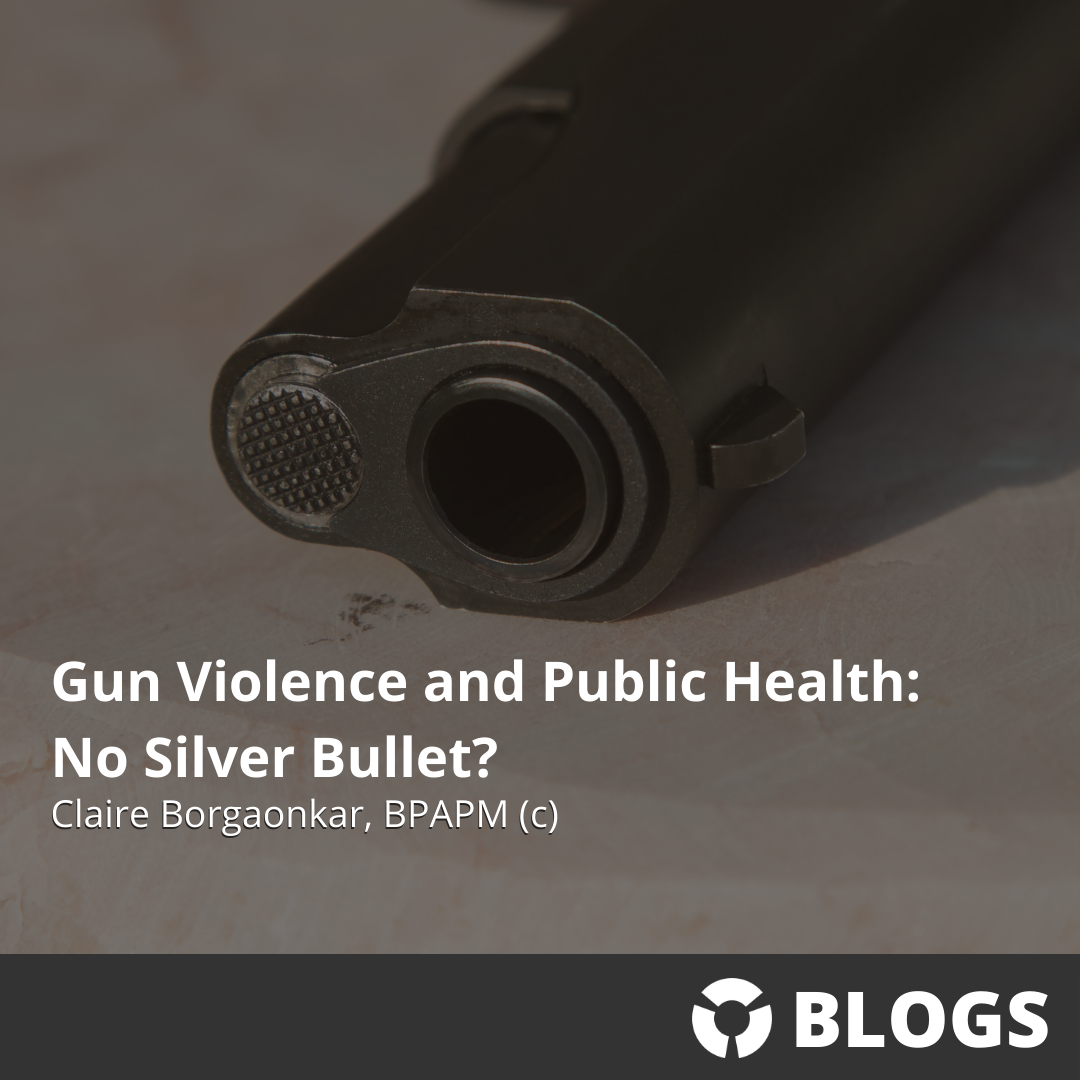
On the evening of April 18 2020, a 51-year-old gunman went on a 13-hour rampage across the small town of Portapique, Nova Scotia, murdering 22 people and injuring six others (Boyko, 2021). The tragedy marked the deadliest mass shooting in Canadian history (Boyko, 2021) and sent shockwaves through a nation that has become more and more familiar with the devastation of gun violence in recent years. Just two weeks later on May 1st, Prime Minister Justin Trudeau announced a nation-wide ban on military assault-style weapons (Tasker, 2020). The ban targeted approximately 1500 types of firearms (Tasker, 2020) in an attempt to prevent another mass shooting or gun-related death from ever happening on Canadian soil. While many applauded this move, others pointed out flaws in the Prime Minister’s new law. Two opposing sides emerged: on one side, critics accused Trudeau of unfairly punishing law-abiding gun owners with strict and ineffective regulations; on the other side, experts criticized him for not taking enough action to keep guns out of the hands of violent criminals. An examination of gun violence from a public health perspective could be used to help us make sense of these two opposing viewpoints and come up with an effective solution.
22/12/2021

May 8, 2020 marked the 40th anniversary of the smallpox eradication. However, this historical achievement has been tempered as there is a growing concern that global societal disruptions and lockdowns have been affecting the immunization rates in both developing and developed countries. In an article titled ‘A rise in deaths from preventable diseases must not be part of COVID-19’s legacy’, Dr. Edward Parker, a research fellow at the Vaccine Centre at the London School of Hygiene & Tropical Medicine, warns that the incidence of vaccine preventable diseases will spike as immunization programs are suspended. Vaccine preventable disease outbreaks have followed crises in the past. After the Ebola outbreak in the Democratic Republic of Congo, an eruption of measles cases claimed more than twice as many deaths as Ebola (Parker, 2020). These crises disrupt vaccine delivery and distribution, shifting focus to more immediate health concerns. Competing agendas and the spread of misinformation further undermines efforts to maintain routine vaccination schedules. Vaccines are often described as “victims of their own success” (Iwasaki & Omer, 2020; Nadeem, 2018). They are so effective at preventing disease, few people remember the devastation and suffering that diseases such as measles and polio can cause (Iwasaki & Omer, 2020). This breeds complacency as many people do not prioritize vaccination while others view potential vaccine side effects as a more concerning issue than the disease itself (Nadeem, 2018). However, even when facing the current threat of COVID-19, a high percentage of the population is resistant to vaccination despite the constant coverage of the dangers associated with the disease.
22/12/2021

Historically, climate change has been framed by discussions solely focused around the planet’s rapidly warming temperatures, typically accompanied by images depicting polar bears on melting ice sheets. While thought provoking, these pictures can lead people to view climate change as a distant problem that has little impact on daily life. In his TedX talk titled, “Climate Change is Affecting Our Health. Is There a Cure?” Dr. Jonathan Patz moves past these traditional ways of thinking about climate change to a more nuanced approach which frames climate change as a public health threat. Dr. Patz examines the many ways climate change can impact human health, be it through heat waves, natural disasters, air pollution, or other avenues. He then highlights multiple opportunities for key industries to address CO2 and fossil fuel outputs that could not only combat climate change but vastly improve human health. Dr. Patz concludes with simple goals we can all support regardless of our attitudes towards climate change.
12/12/2021
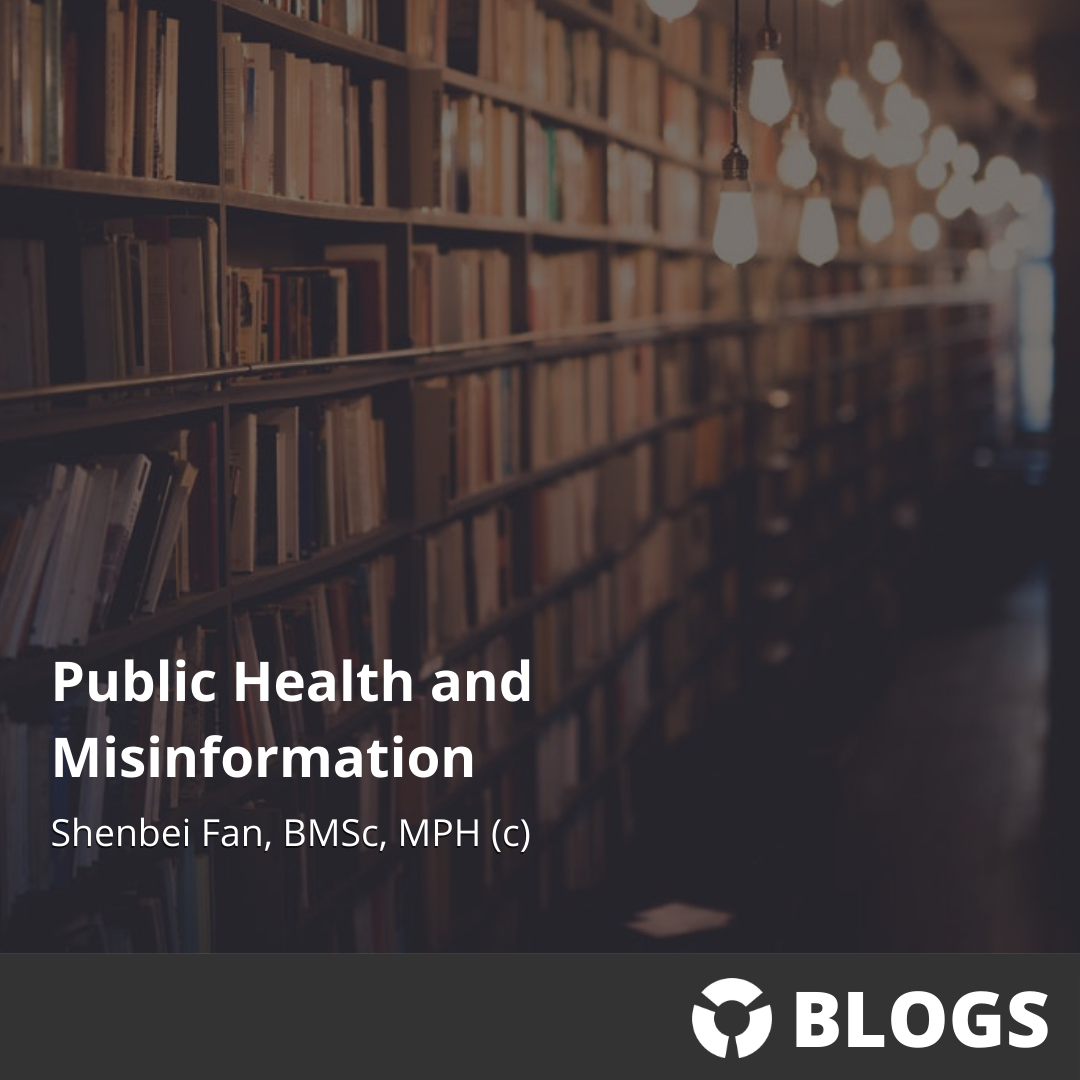
Campaigns and movements intended to mislead the public about the best course of action for their health are not new. From anti-vaxxers to the promotion of unregulated therapies, the litany of pseudo-scientific visions speaks to a long history of empirical evidence jostling with self-proclaimed “expertise” for attention and influence within our information space. With the advent of COVID-19, the crisis of health misinformation has once again emerged from the shadows to take centre stage. As soon as the World Health Organization declared a pandemic in March of 2020, online media became flooded with conspiracy theories about the “China virus”, with some propagating “hoax” narratives and others peddling rumours that COVID was a “bio-weapon manufactured in a Wuhan lab”. In this episode, the PHI team unravels the myths about the world’s greatest public health dilemma in a century and exposes the dangers of blind belief ungrounded in factual evidence.
12/12/2021

“This is not just about the environment, it’s about the community, it’s about jobs, it’s about justice.” – Eddie Bautista As the current pandemic continues to shed light on […]
4/12/2021

As the COVID-19 pandemic threw the world into chaos in March 2020, most agreed without question that sweeping lockdowns were a necessary public health measure to slow the spread of the virus. While justifiable, however, they have not been without consequences – millions of jobs have been lost worldwide as a direct result of pandemic mitigation measures, threatening to undo years of work in global development. In April 2020, the United Nations Univeristy’s World institute for Development Economics Research predicted that economic stagnation and collapse related to COVID-19 could set back development progress up to 30 years in some regions. (United Nations University, 2020). Real data from 2020 shows these figures were not that far off – 97 million additional people were thrown into poverty as a direct result of the pandemic, marking an unprecedented global high (World Bank Blogs, 2021). Until economic activity can resume safely and normally around the world, mass unemployment will continue to drive global poverty rates to an all-time high and could even threaten the success of the UN Sustainable Development Goals. This will disproportionately affect the lives of vulnerable groups as well as people living in low- and middle-income countries.
3/12/2021

Crumbling infrastructure. Overcrowded living conditions. No access to healthcare. These are the conditions under which millions of refugees have been weathering the COVID-19 pandemic. More than 70 million people worldwide are refugees (Bruce-Lockhart, 2020). Of that, about 6 million live in refugee camps, which are temporary settlements made to assist and protect those who have fled their countries of origin due to violence, political persecution, or both (The UN Refugee Agency, 2021). Life in these camps is anything but comfortable – shelters are overcrowded, facilities are poorly maintained, and effective healthcare is almost impossible to obtain, making them a less-than-ideal place to be during a global health crisis. Refugees have long been a neglected group when it comes to global health, and COVID-19 has been no exception. In April of 2020, David Miliband, CEO and President of the International Rescue Committee, warned of “death on an appalling scale” in refugee camps if no action is taken to suppress the virus (Bruce-Lockhart, 2020). Not only would this be a humanitarian disaster of massive proportions – it could potentially put the entire global community at risk.
3/12/2021

There is a growing concern that front-line healthcare workers from all disciplines in hospitals and other care settings are not being provided with the tools to ensure their safety during the COVID-19 pandemic. An article by Vox titled “Doctors and nurses are risking their mental health for us” outlines some of the short and long-term negative consequences from working regularly in extremely stressful environments. This was based on a study published in the Journal of the American Medical Association (JAMA) that found that healthcare workers in China, the first country to be hit with COVID-19, are experiencing many psychological impacts such as anxiety and depression.
29/11/2021

In this episode, the PHI team attempts to challenge fundamental assumptions about our current circumstances, asserting that the broader social, ethical, and cultural consequences are often overlooked in our collective efforts to keep everyone “safe”.
29/11/2021

In Episode 3 -Wildlife Trade & Coronavirus of Public Health Insight’s podcast, we examine the video “How wildlife trade is linked to coronavirus” by Vox. After learning about how wet markets and wildlife trade are linked to the coronavirus, we look into the discrimination and narratives involving the outbreaks, then discuss future steps to prevent future zoonotic outbreaks.
18/11/2021

“The most important thing is that these diseases affect the poorest of the poor. And one thing that brings votes is lifting people out of the cycle of poverty.” Dr. […]
14/10/2021

The development of effective and safe contraception has been a significant medical advancement of the 21st century. According to the United Nations Contraceptive Use by Method data booklet, 922 million women of childbearing age use some type of contraceptive (UN Population Division, 2019).
26/9/2021

Meet Shania Bhopa, our Public Health Insight Community Star! Shania currently works to support the mental health of youth transitioning out of shelters into independent housing, and is interested in improving global health education at the secondary school level.
27/8/2021

Meet Gargi Deshpande, our Public Health Insight Community Star! Gargi currently works as a Clinical Research Associate in India/United States to help implement novel Breast Cancer screening solutions through Machine Intelligence.
20/8/2021

Meet Thea Alfred Sindato, our Public Health Insight Community Star! Thea is a Medical Student in Tanzania, currently working as a public health promoter through non-governmental organizations to give preventive education on various diseases.
12/8/2021
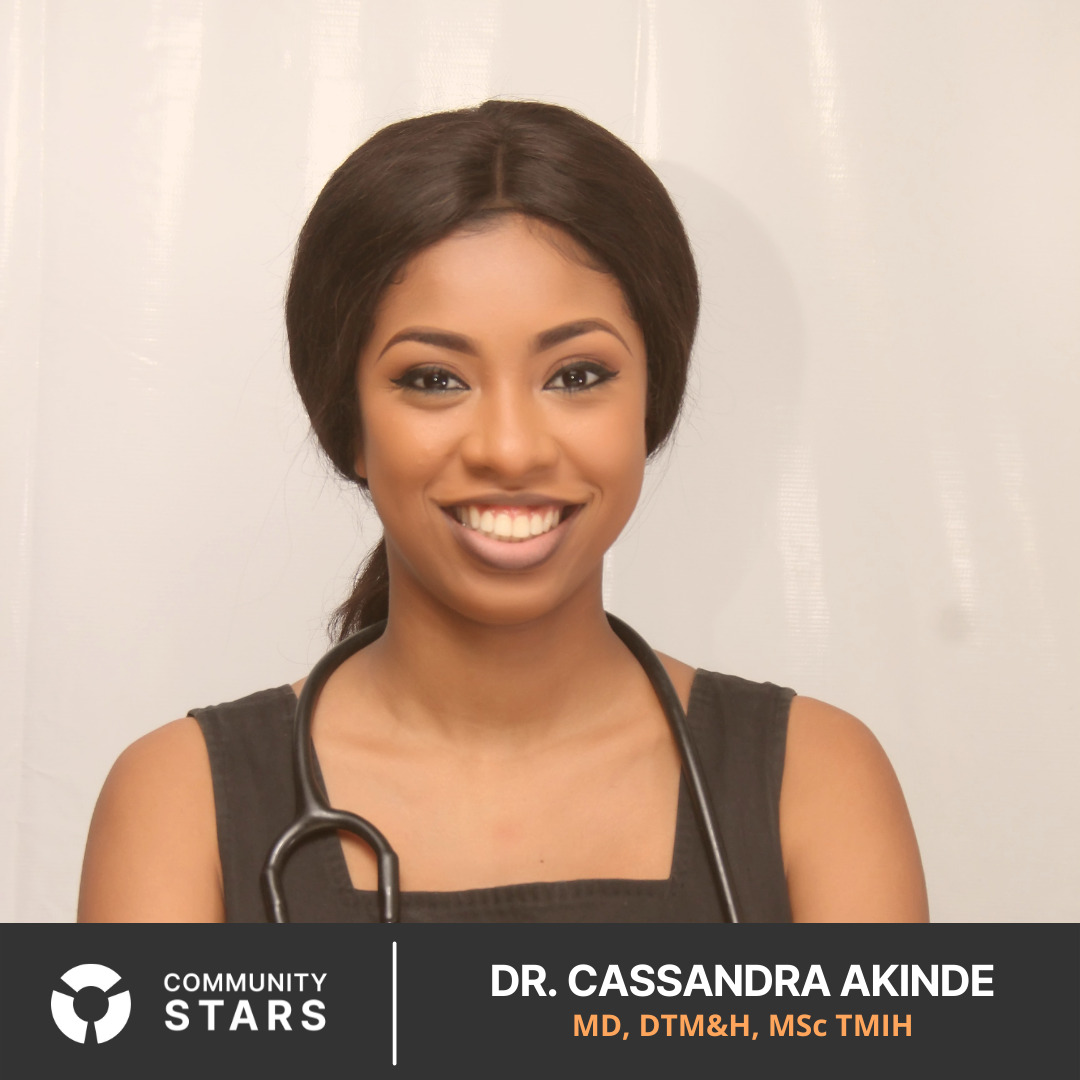
Meet Dr. Cassandra Akinde, our Public Health Insight Community Star! Dr. Akinde is a Public Health Physician in the area of Tropical Medicine, Child Health and Policy Advocacy in Nigeria.
5/8/2021
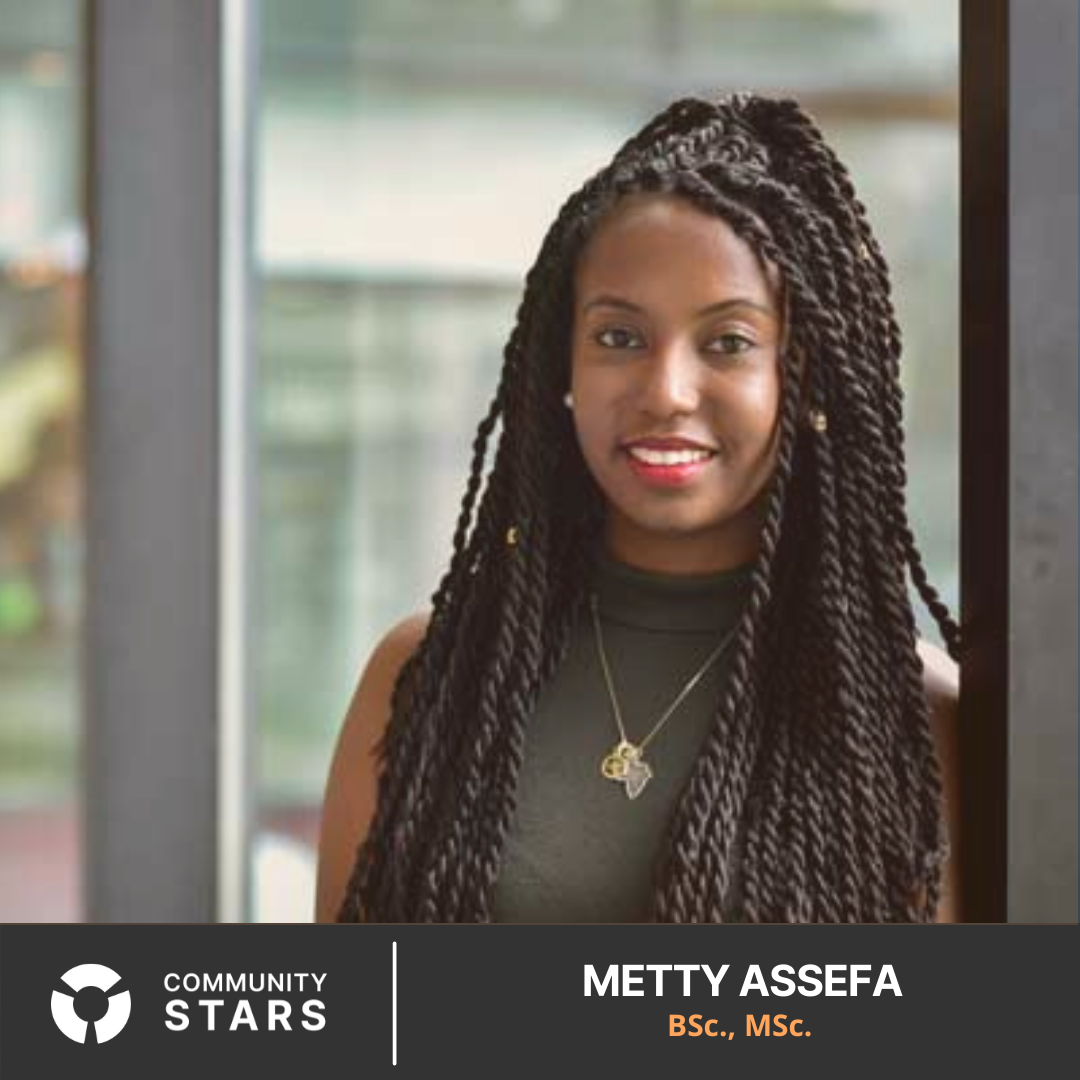
Meet Metty Assefa, our Public Health Insight Community Star! Metty currently works at the Ontario HIV Treatment Network (OHTN) where she provides consultation and support to network partners.
25/7/2021

Meet Dr. Ketki Joshi, our Public Health Insight Community Star! Dr. Joshi is associated with Public Health Foundation of India as a Research Assistant, working on a UNICEF funded project “e-GARIMA” to capacitate adolescents and youth to change behaviors on health, nutrition and gender-based components in the state of Uttar Pradesh.
15/7/2021

As of June 21, 2021, only 21.8% of the world’s population has received at least one dose of a COVID-19 vaccine, compared to countries like Canada and the U.S., with more than 50% of the population having received at least one dose of COVID-19 vaccine. "The world is slowly transforming into the vaccine haves and the vaccine have nots… This inequity is not just a moral failure but a scientific failure."
12/7/2021
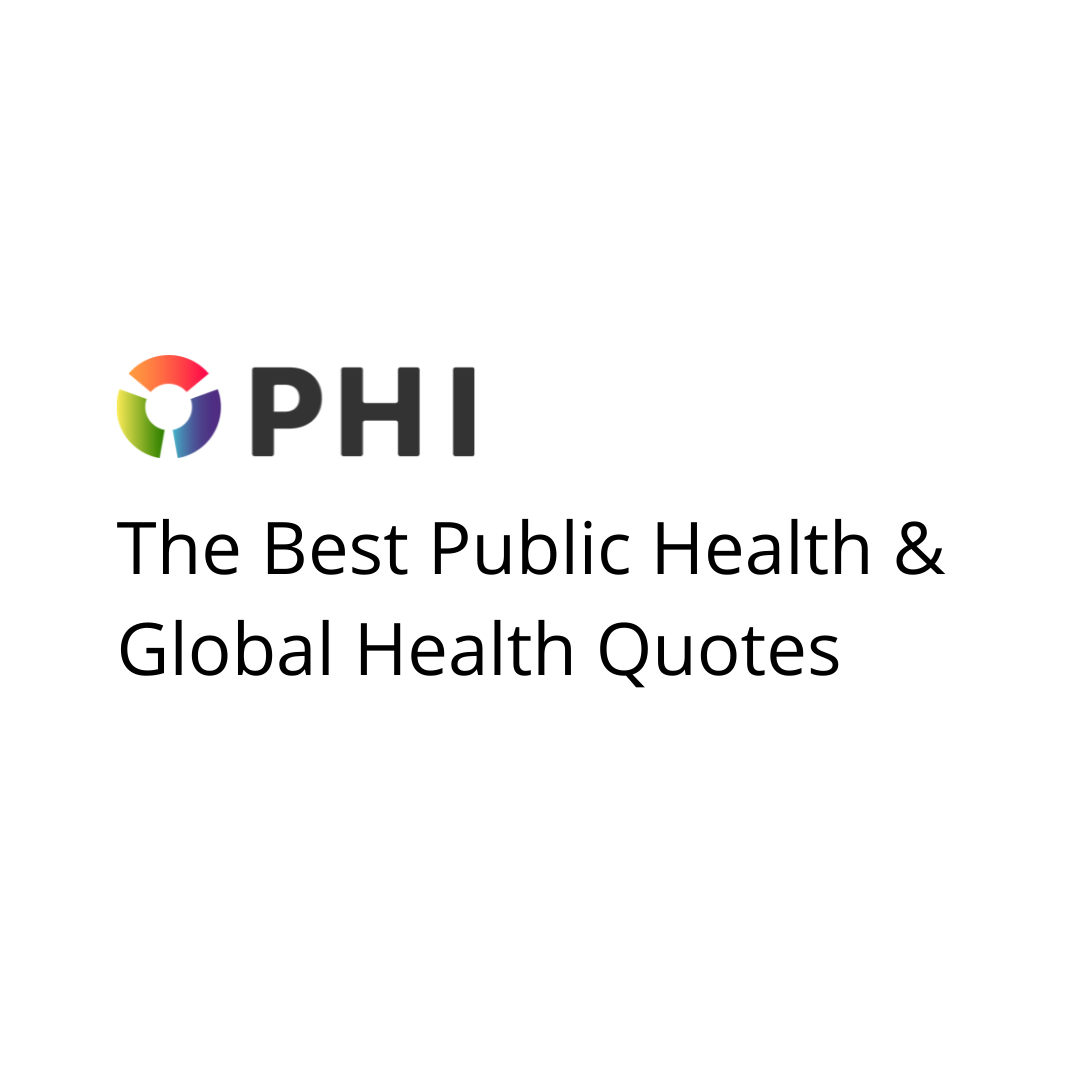
We wanted to create an easy-to-access list of quotes that you can use to help inspire, motivate, clarify, and understand public health and global health ideas and concepts. This list will be constantly updated throughout the year.
11/7/2021

Meet Patrick Segawa, our Public Health Insight Community Star! As the team lead, Patrick provides overall leadership for PHAU’s Uganda Portfolio which currently includes overall oversight of program implementation, personnel management, and financial monitoring for several integrated youth-focused Menstrual, Sexual and Reproductive Health, and HIV/AIDS funded programs and projects.
9/7/2021

Meet Aloyce Paul Urassa, our Public Health Insight Community Star! As a public health enthusiast, Aloyce does advocacy to fight diseases of poverty such as malaria and neglected tropical diseases. He also works to promote the global health security agenda and the fight against gender-based violence.
1/7/2021
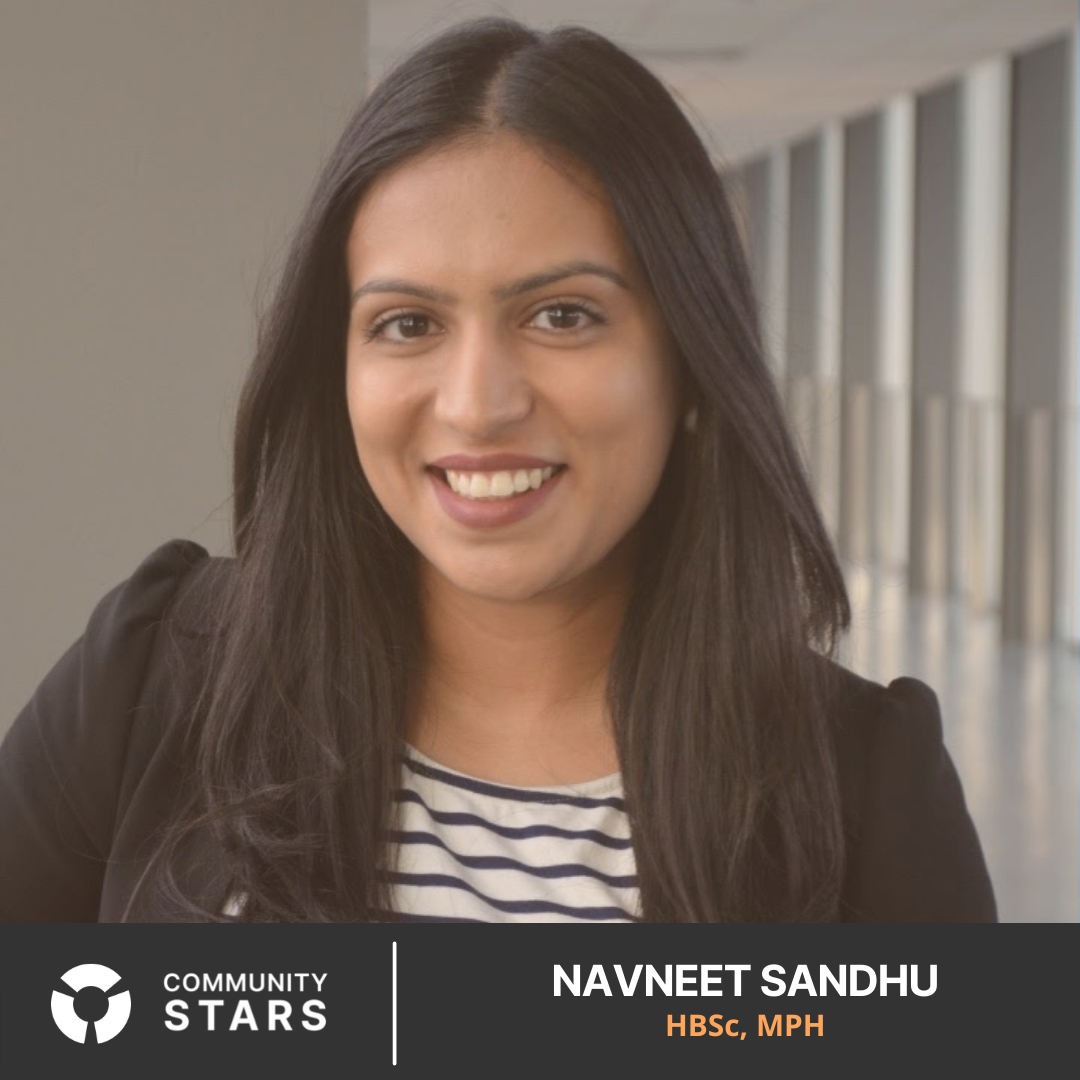
Meet Navneet Sandhu, our Public Health Insight Community Star! Navneet works as a Health Promoter on the Health Equity and Reconciliation Team with the Middlesex-London Health Unit, focusing on ensuring the workplace is a diverse and inclusive environment for all employees.
27/6/2021

Meet Alessandra Andreacchi, our Public Health Insight Community Star! Alessandra works in population and public health research studying chronic disease epidemiology. She is excited to begin her PhD in Epidemiology this fall!
21/6/2021

Meet Zoha Anjum, our Public Health Insight Community Star! Zoha is a Dental Student & Researcher who has mainly worked in water, menstrual hygiene and women’s health research.
10/6/2021
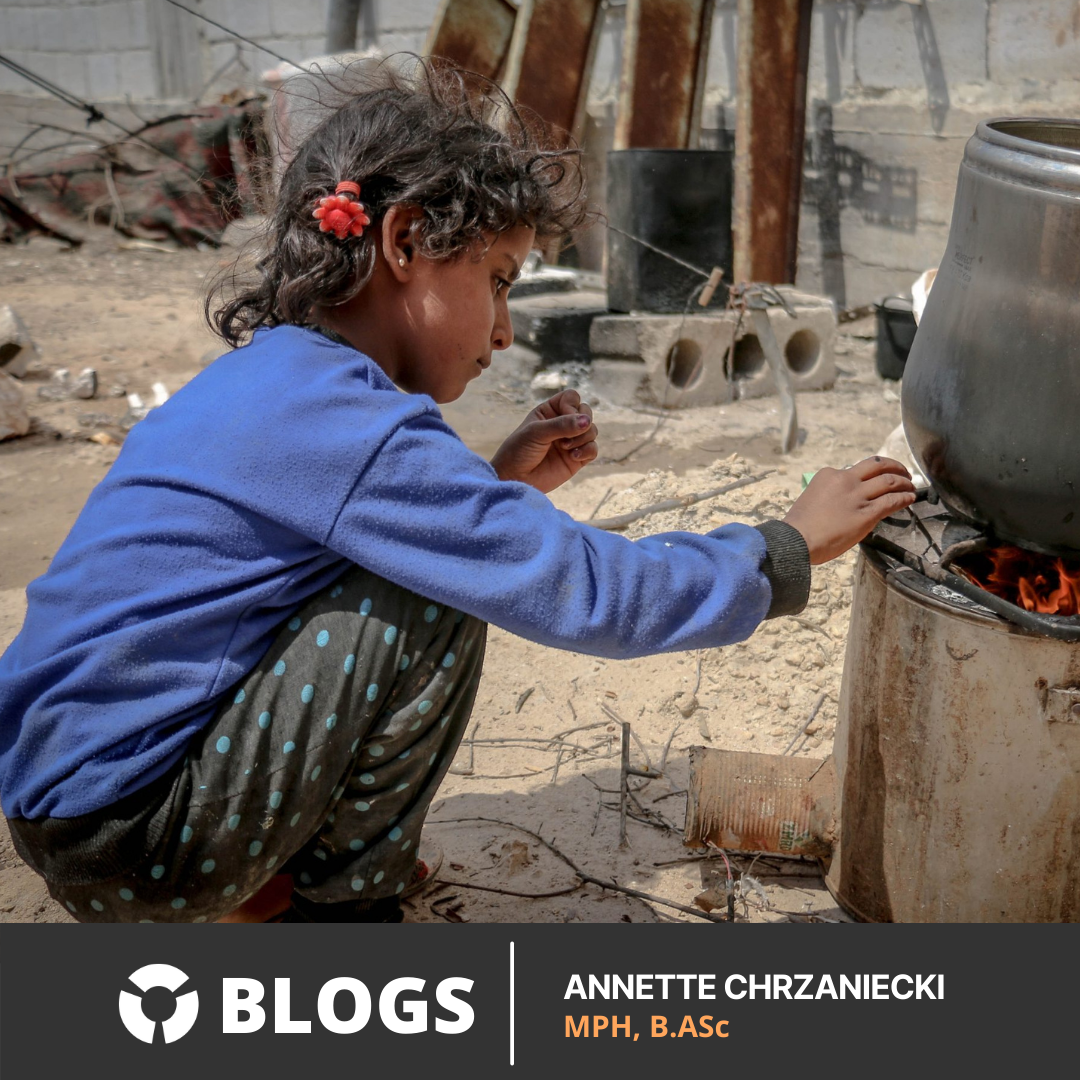
“The COVID-19 pandemic has revealed the fragility of the global food system and the need for more equitable, sustainable and resilient systems to nutritiously and consistently feed 8.5 billion people […]
7/6/2021

Meet Lauren McKay, our Public Health Insight Community Star! Lauren works as a COVID-19 Food Program Coordinator Assistant in Norfolk County, Ontario.
3/6/2021

Meet Shara Arasaratnam, our Public Health Insight Community Star! Shara is a Covid-19 Response Project Lead at the Canadian Mental Health Association (CMHA), working on implementing a program to bridge the transition of care from hospitals discharges to a multi-disciplinary multi-agency program.
27/5/2021

Meet Tess Wishart, our Public Health Insight Community Star! Tess works in health promotion and research, specifically exploring the efficacy of social media as a knowledge translation medium for mental health information.
21/5/2021

Emily works for Health Canada as a Project Coordination Biologist, where she reviews pest control products through science-based evaluation and risk assessments to ensure they pose minimal risk to human health and the environment.
13/5/2021

Zamir works in the United States, to leverage Medicaid and other policies to improve the health of low-income and underserved communities and ameliorate health disparities.
6/5/2021
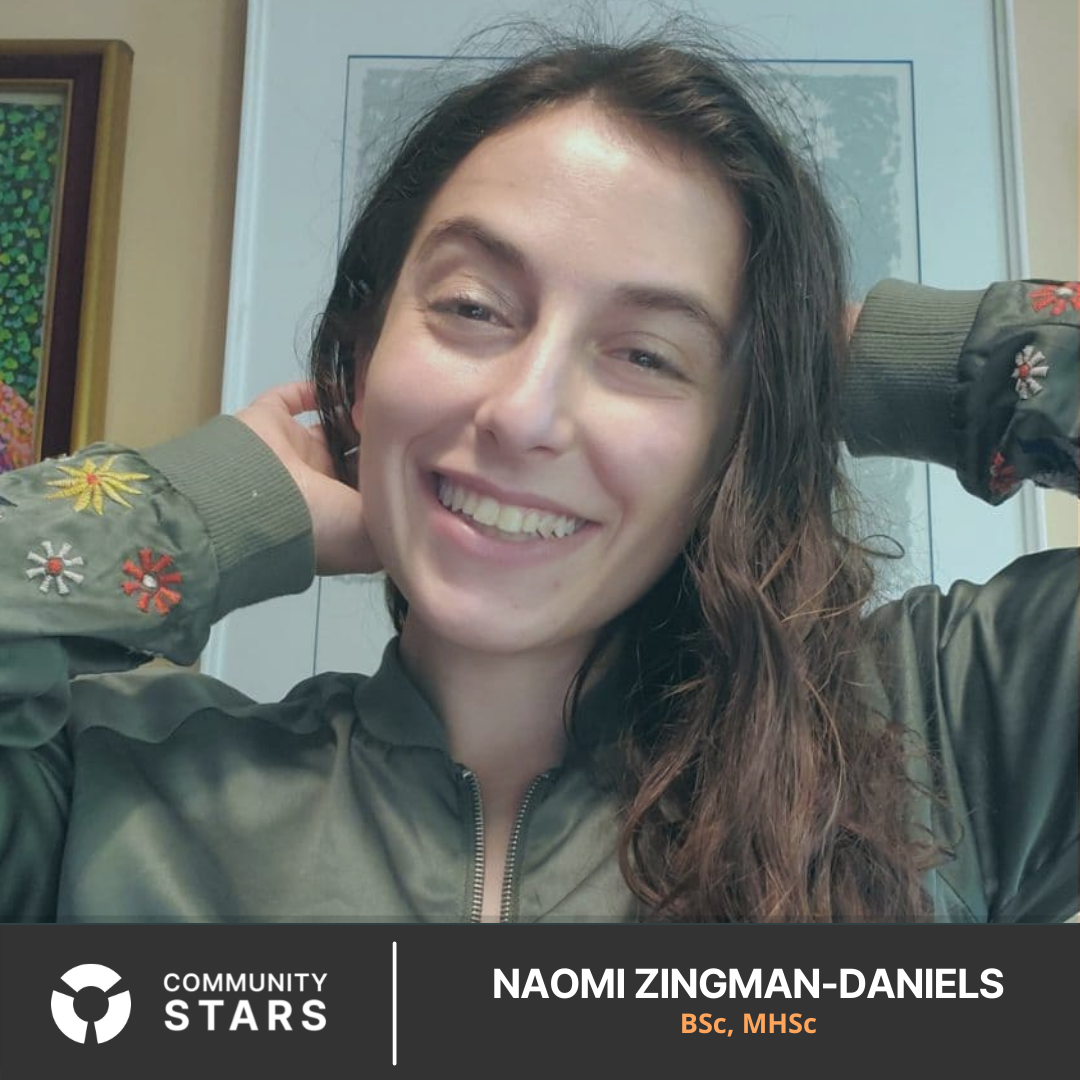
Naomi works at Project Northern Lights, a Canadian non-profit, focusing on responsive and sustainable health solutions for marginalized communities.
2/5/2021

Meet Juliana Diaz, our Community Star of the week! Juliana works in the field of global health, focusing on ensuring sustainability by supporting policies and partnerships that are critical to empowering populations.
22/4/2021
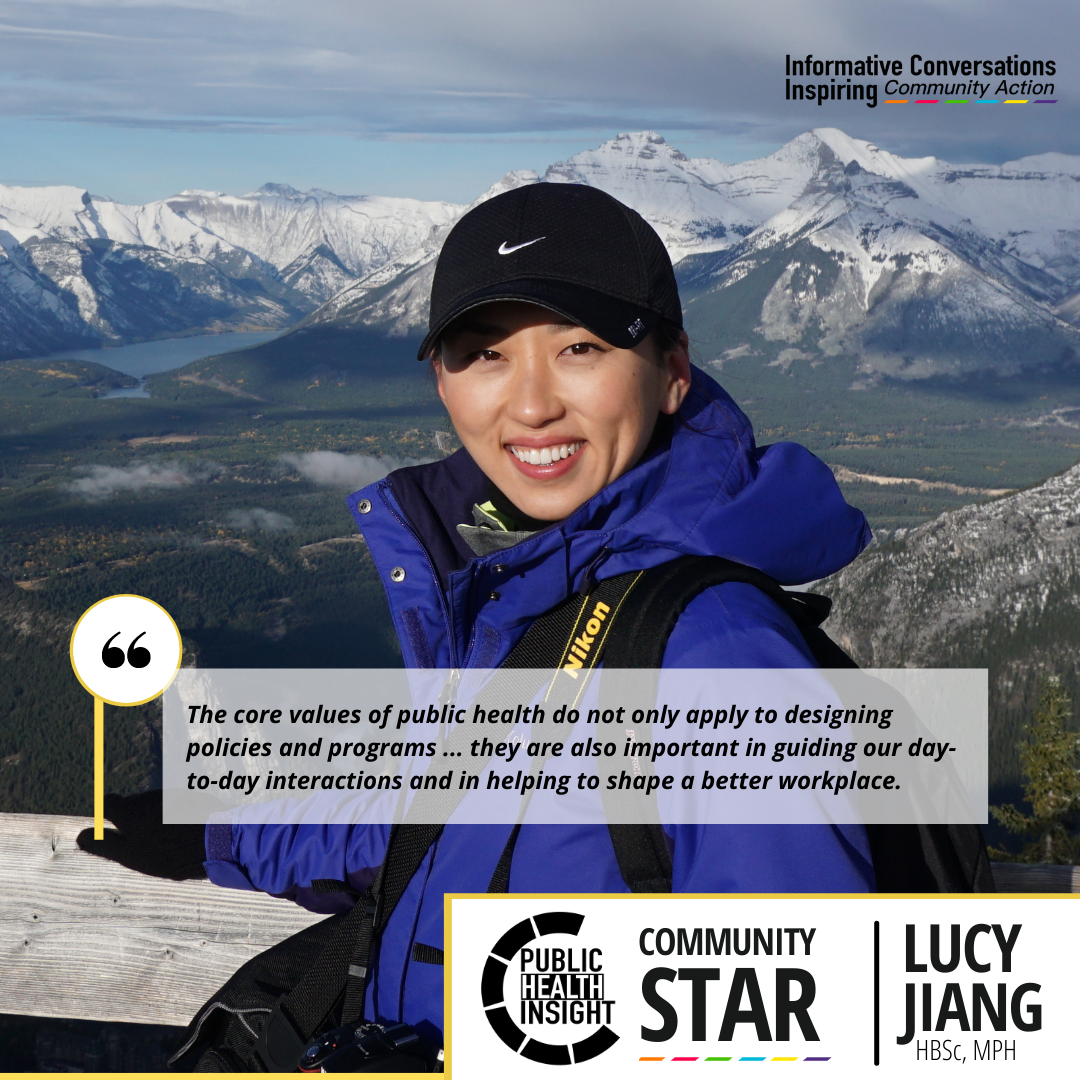
Meet Lucy Jiang, our Public Health Insight Community Star! Lucy works as a Quality Consultant at the Regional Cancer Program in Mississauga, where she looks after the quality of cancer care for the entire region and responds to local cancer issues.
18/3/2021
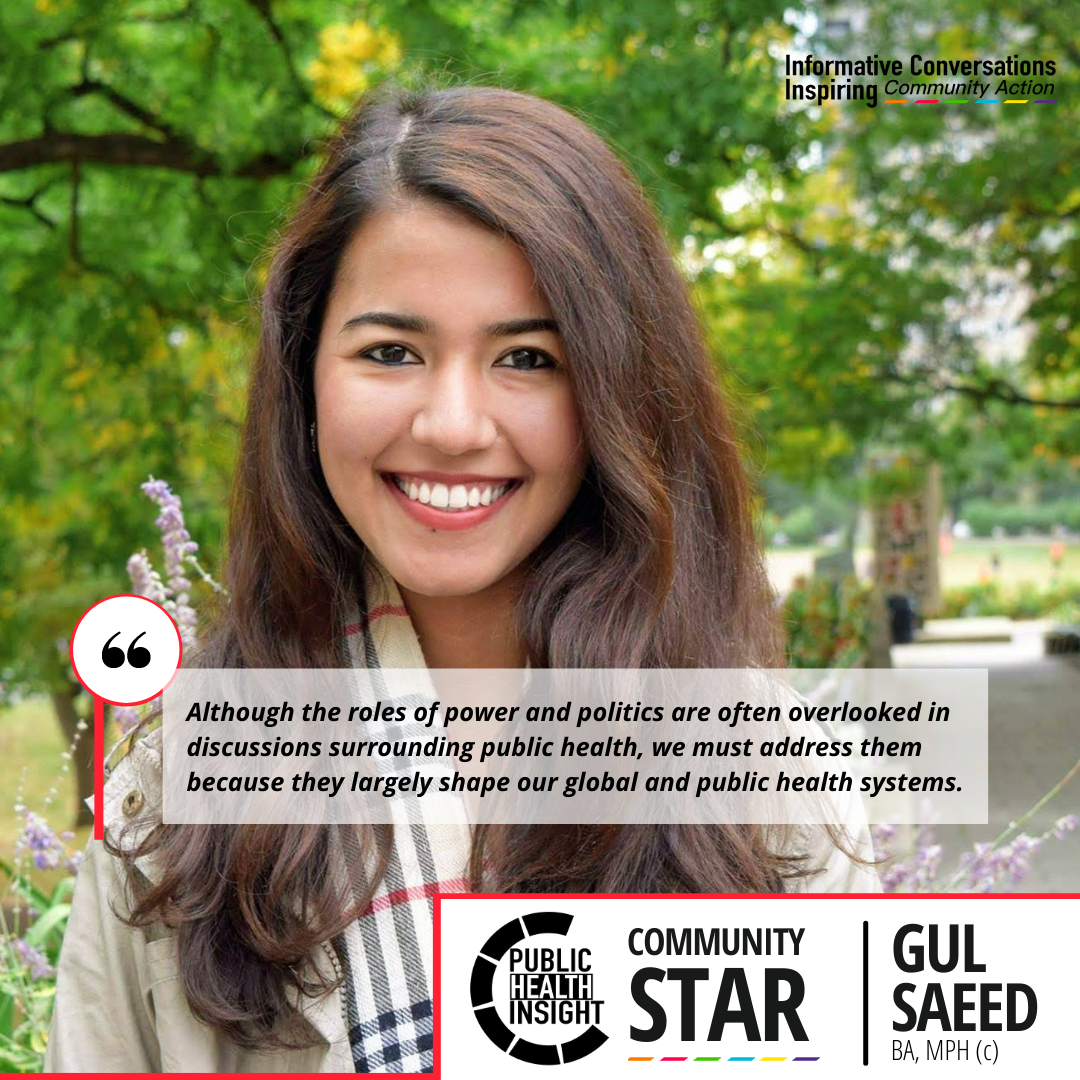
Meet Gul Saeed, our Public Health Insight Community Star! Gul works as a researcher, focusing on examining access to goods/services to inform the development of evidence-based strategies to improve access for underserved populations.
11/3/2021
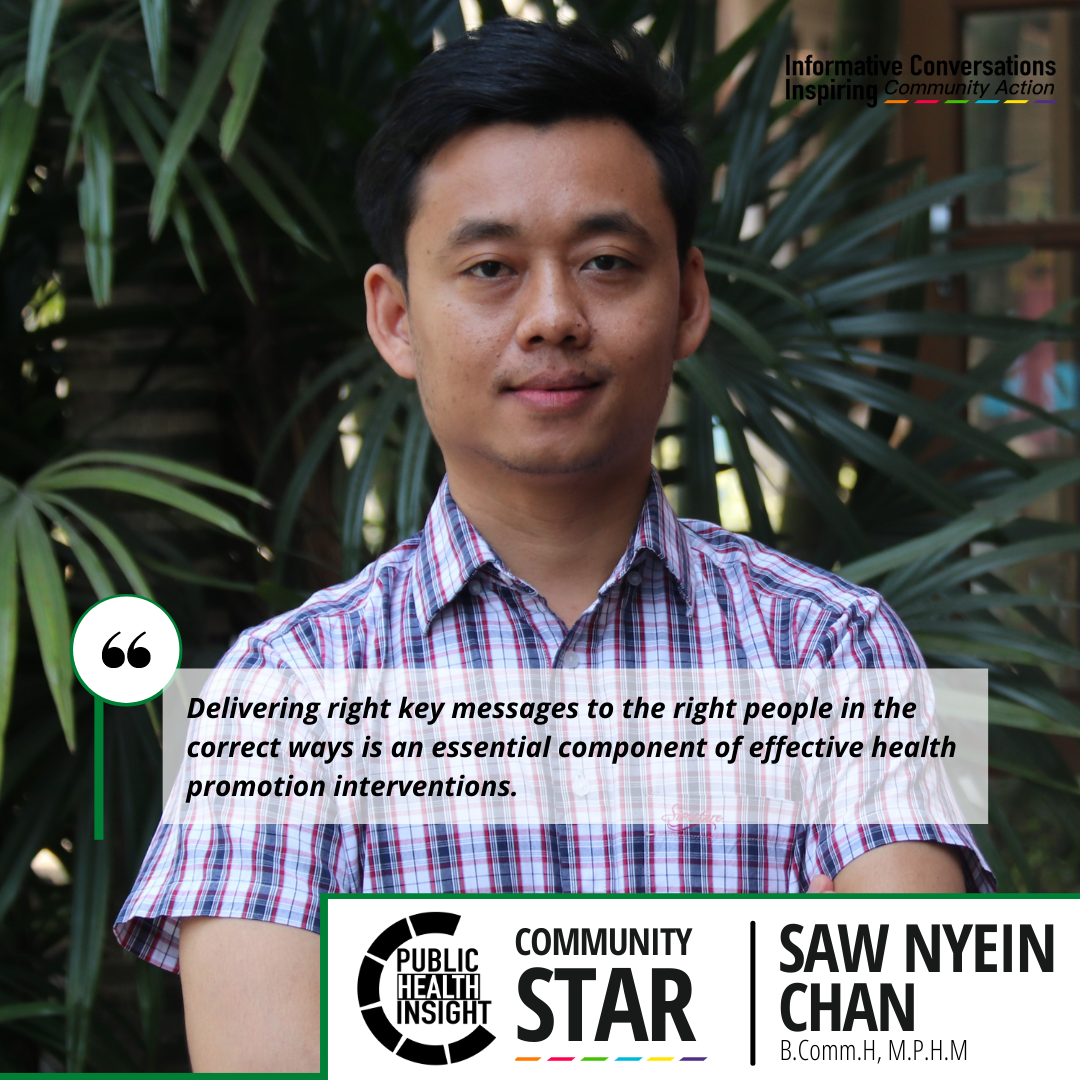
WHAT DOES PUBLIC HEALTH MEAN TO YOU? Public Health can be seen as the fundamental of health system that addresses health status of population and its determinants. Public health also […]
4/3/2021
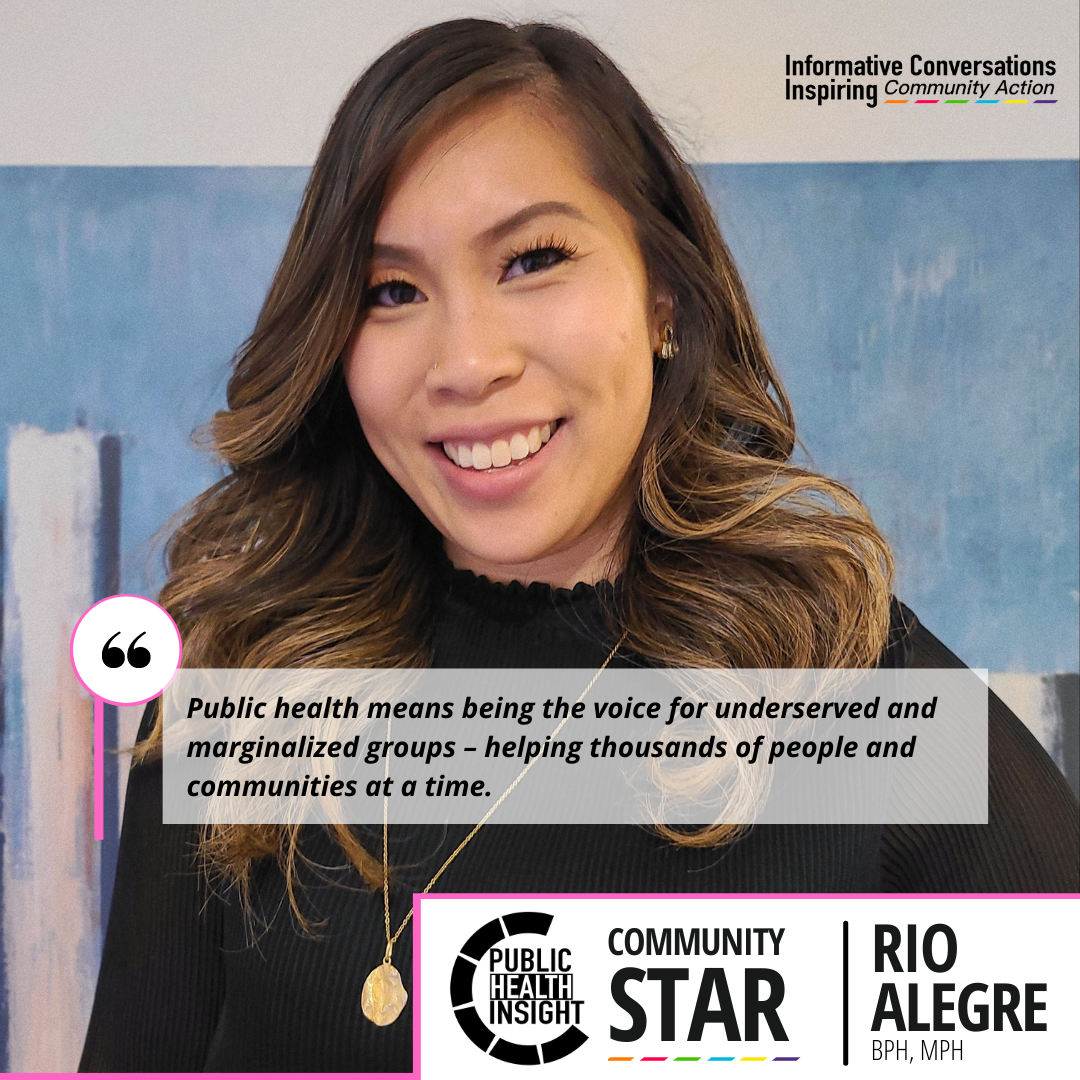
WHAT DOES PUBLIC HEALTH MEAN TO YOU? To me, public health means being an active partner dedicated to protecting and preventing poor health outcomes through application of program planning, policy […]
25/2/2021